









RYAN ROSENKRANTZ AND HAYLIE LOVELACE

the magazine of the Memphis Bar Association
Memphis Bar Association
Publications Committee
Audrey Calkins, Chair
Terre Fratesi, Vice Chair
Nicole M. Grida
Regina Hillman
Maureen Holland
Anna Vescovo
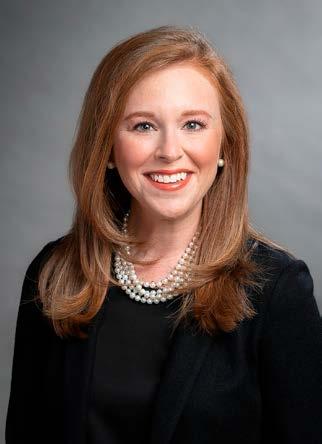
Lauran
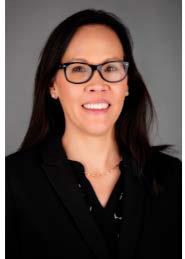


Adam Johnson Past President Nahon, Saharovich & Trotz
Preston Battle
Audrey Calkins
Hallie Flanagan
Malcolm Futhey III
Jack Heflin
Geoffrey Lewis
Joseph McKinney
Hon. Danielle Mitchell
The Memphis Lawyer is a quarterly publication of the Memphis Bar Association, Inc. with a circulation of 2,000. If you are interested in submitting an article for publication or advertising in an upcoming issue, contact info@memphisbar.org. The MBA reserves the right to reject any advertisement or article submitted for publication.
Jerrick Murrell
Ruchee Patel
Danielle Rassoul


Maggie Roney Abigail Webb Sala
Maggie Stringer
Quinton Thompson
Councilwoman Janika White
Kristina Woo
Section Representatives
Anne Davis
Dan Norwood
Joe Ozment
Toni Parker


AWA Representative Misty O'Neal
Law School Representative Regina Hillman
NBA Representative
Jackie Richardson
YLD President Brande Boyd




BY LAURAN STIMAC, MBA 2025 PRESIDENT
The contributions of our local judges to the MBA have been particularly impactful in recent months, so this President’s Column is devoted to our appreciation for them. We know that our judges spend lots of time reviewing our pleadings, presiding over hearings and trials, and ensuring that our justice system runs smoothly, but some of you may not know about the other things they do to support our local community—especially its legal component—in addition to managing their caseloads. Allow me to highlight a few recent instances where our local judges went above and beyond for the MBA.
On April 24, we commemorated the passing of 19 members of our legal community at our annual memorial service at Calvary Episcopal Church. Judge Phyllis Gardner knew every one of those members, and she delivered remarks about each of them in her signature heartfelt and witty way.
On May 1, the U.S. District Court judges held an en banc naturalization ceremony and welcomed more than 100 new American citizens from around the globe into our national fabric. I was honored to participate in that ceremony and hear the federal judges provide personal insight and wise counsel to our newest citizens.
On May 19, we celebrated Judge Valerie Smith’s appointment to the Court of Appeals, as well as her years of service as a Circuit Court Judge and consistent contributions to MBA programs—teaching countless CLEs, chairing our Bench Bar Conference as both an attorney and a judge, and giving valuable advice.
educational group activities preceded this kickoff.
As we look ahead to the next few months of the MBA calendar, we will see Judicial Chairs Magistrate
Judge Annie Christoff and Justice Mary Wagner, along with Judicial Vice Chairs Judge Kevin Ritz and Judge Greg Gilbert, working tirelessly to ensure that our Bench Bar Conference on October 3-6 is both educational and fun-filled. We are also excited to have judges speaking at our upcoming sessions of the 2025 MBA Leadership Forum, and we are always appreciative of those like Judge Danielle Mitchell who serve on our Board of Directors.
These are just a few of the many judges who donate their valuable time to the MBA every year. We are thankful



On May 30, Judge Carlyn Addison kicked off the SLIP program as its co-chair, providing our 2025 students with important guidance about how to make the most of their time at their work sites. Many hours spent reviewing applications, conducting interviews, and planning
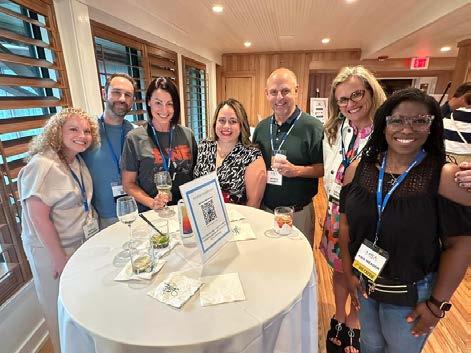

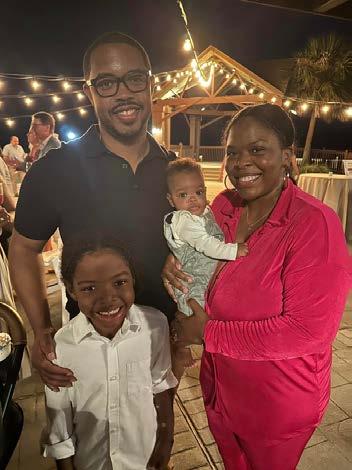

BY JENNIFER A. BROBST
Awomen’s bar association as a specialty bar is an inherently political creature given the history of women in the profession and the potential for action among its unique membership. Why these associations continue to remain vital resources for women and the profession is worth revisiting. Women in the United States have outnumbered men since the 1950s.1 Indeed, more women than men graduate from college and law school today, but they may be steered toward less lucrative fields and face pay inequities, which eventually affect student loan repayment, retirement savings, and accrued material wealth.2 And while there are slightly more women than men in the college-educated workforce,3 far fewer women enter and remain in many professional fields.4
Today, 41% of lawyers nationwide are women, but in Southern states the rates are often lower, e.g., Tennessee (38.4%), Louisiana (38%), Kentucky (37%), Alabama (35.8%), and Mississippi (32%).5 Women can still be and feel like minorities in certain contexts, and a vast number of women have multi-layered identities associated with
1 U.S. Census Bureau, Questionnaire CQC-3 (1990) (noting males outnumbered females from the earliest American colonial times until the 1950 census, due to immigration trends and poor maternal health).
2 See Ass’n of Univ. Women, www.aauw.org/about/ (60% of college graduates are women today); Profile of the Legal Profession 2024, Am. Bar Ass’n, www.americanbar.org (reporting that women became a majority of law school students in 2016 and that 42% of law school deans are women, but only 34% of general counsel at Fortune 1000 companies are women).
3 The U.S. Chamber of Commerce reports that in 2023 women on average made $0.84 compared to men’s $1.00 for equivalent title and work, which accumulates to a $10,000 deficit annually. Stephanie Ferguson Melhorn & Isabella Lucy, Date Deep Dive: Women in the U.S. Workforce, U.S. Chamber of Commerce (June 26, 2024), https:// uschamber.com/workforce
4 Profile of the Legal Profession 2024, Am. Bar Ass’n, www.americanbar. org (reporting that women became a majority of law firm associates in 2023 and are anticipated to become a majority of full-time law faculty members in 2025).
5 Id. (noting that not all state bars record and share attorney information by gender).

additional forms of minority status, such as those related to veteran and family status, race, sexual orientation, disability, and ethnicity. Although many specialty bar associations reflect these equity concerns, women’s bar associations vary in mission while deliberately bringing women together. Since their inception, women’s associations and institutions have continued to remain lawful, even though many men’s associations have faced legal challenges and social pressure to open their doors to everyone.
For example, the restructuring of the Boy Scouts of America in 2018 to admit female and gay members occurred despite the fact that the Supreme Court allowed the organization to remain selective. In 2000, the Court held that “forced membership is unconstitutional if the person’s presence affects in a significant way the group’s ability to advocate public or private viewpoints.”6 In the meantime, the Girl Scouts of America continues to exclude boys as members and admits transgender youth who, in the association’s words, “live as girls.”7
While Students for Fair Admissions v. Harvard brought about a pivotal shift in policy by denying the continued justification of race as a factor in college admissions,8 private women’s colleges remain.9 One black male
6 Boy Scouts of America v. Dale, 530 U.S. 640, 640 (2000) (upholding the Boy Scout’s First Amendment right of expressive association to exclude a gay scoutmaster). See also Yeaw v. Boy Scouts of America, 64 Cal. Rptr. 2d 85 (Cal. Ct. App. 1998) (dismissing a discrimination claim on state law grounds relating to the denial of a girl’s application to be a member of the same Boy Scout troop as her twin brother).
7 See https://girlscouts.org (Social Issues FAQ).
8 Students for Fair Admissions, Inc. v. President and Fellows of Harvard College, 600 U.S. 181, 230 (2023) (asserting that the Harvard and UNC Chapel Hill race-based admissions policies “lack sufficiently focused and measurable objectives warranting the use of race, unavoidably employ race in a negative manner, involve racial stereotyping, and lack meaningful end points”).
9 Cf. United States v. Virginia, 518 U.S. 515 (1996) (holding that the Virginia Military Institute’s policy categorically denying admission to women applicants violated their right to equal protection in higher education).
commentator recently wrote in the progressive magazine Medium:
To adapt to changing times, many of these [women’s college] institutions have made a significant policy shift by accepting male-to-female transgender students while denying admission to cisgender men. This shift, I believe, challenges the very essence of equal protection under the law, as all citizens, whether in government or governmentfunded programs, should be treated equally.10
Certainly not all would agree with this view. For many years, state bar associations and the American Bar Association (ABA) were de facto men’s organizations because women were not admitted into practice nor welcomed into bar association leadership.
Today, that is no longer the case, although it took some time. For example, although the ABA was founded in 1878 with a mission of “defending liberty and pursuing justice,” it first admitted white women as members in 1918. The ABA took nearly a century to elect its first white woman as President in 1995, Roberta Cooper Ramo. Twenty years later, Paulette Brown was elected in 2015 to become the first Black woman to serve as ABA President.11 The ABA, however, did not admit Black attorneys as members until 1950 (and issued a resolution expressing regret for its discriminatory conduct in March 2025).12 The National Bar Association, the nation’s largest bar association of predominantly Black legal professionals, was founded in 1925 with gender-inclusive membership—but it took over fifty years to elect a woman as President.13 This history helps explain why
10 Justin Samuels, Challenging Discrimination at Women’s Colleges: A Personal Perspective, Medium (Sept. 5, 2023), https://justinsamuels. medium.com/challenging-discrimination-at-womens-colleges-apersonal-perspective-c5d35a4ea76e
11 See Selma Moidel Smith, A New Discovery: The First Women Members of the ABA, 85(3) Women Lawyers J. (Fall/Winter 2000); www. americanbar.org/about_the_aba/ (ABA History).
12 Matt Reynolds, 4 Black Bar Association Leaders Reflect on Historic Movement, ABA J. (Feb. 23, 2022), abajournal.com; National Bar Association, Open Letter from Wiley S. Adams, NBA President to William R. Bay, ABA President, (March 31, 2025), www.nationalbar. org (expressing appreciation for the ABA resolution as an “historic step toward building an inclusive legal community rooted in justice, equity, and mutual respect”).
13 National Bar Association (NBA), nationalbar.org/nba-history (honoring Arnette Hubbard as the first woman President of the NBA in
women attorneys began to form organizations of their own, but it is not the only reason when one takes into account the meaning of affinity in affinity groups.
In the history of women’s organizing in the South, bar associations played an important role, but many important “firsts” for women in the legal profession occurred long before women’s bar associations existed— or even before women had the right to vote. The Women Lawyers’ Club, founded in 1899 in New York City by eighteen women attorneys, advocated for women’s suffrage and eventually became the National Association of Women Lawyers.14 Southern women attorneys were largely on their own and organized in their own way.
Attorney Lutie Lytle became the first woman and first Black woman to be admitted to the bar in Tennessee in 1897, notably in Memphis.15 She served as a law professor at Central Tennessee College where she had graduated as valedictorian, as well as a licensed attorney in Kansas and a member of a national bar association.16 Lytle is often cited as the first woman law professor in the United States.17 When I shared her accomplishments recently with one of my first-year law students, Valesha Rhodes, her response was heartfelt: “It reminds me that I belong in this space. Even though I’m a woman a color, I see that I’m not the first and hopefully won’t be the last.”18
Women in Tennessee faced additional legal hurdles for admission, however, once the bar examination came under the control of the Tennessee Supreme Court in 1903. After being denied admission to the bar, Marion Griffin helped persuade the Tennessee General Assembly to grant women access in 1907. Griffin practiced law in Memphis for over 40 years and served in political office
1980 and also as the first woman president of a major bar association in the United States).
14 See National Association of Women Lawyers, www.nawl.org/history
15 Negro Woman Lawyer, The Elizabethtown, Sept. 17, 1897, vol. XXIX, at 1. See also Colored Woman Lawyers, Chattanooga Daily Times, Oct. 10, 1897, at 19.
16 See Lytle, Lutie A. (1874-1950), Women’s Legal History, https://wlh. law.stanford.edu; History and Milestones, Tennessee Administrative Office of the Courts, https://tncourts.gov/history
17 Russell Fowler, Tennessee’s Lutie Lytle: A Woman of Many Firsts, 54 Tenn. B.J. 18, 18 (Oct. 2018).
18 In conversation with the author, April 15, 2025.

as the first woman elected to the Tennessee House of Representatives in 1922.19 These events correspond to similar timelines during the Progressive Era throughout the United States and around the world in Western nations. For example, the first women attorneys in Argentina, Brazil, France, Germany, Mexico, New Zealand, and the United Kingdom were all admitted between 1887 and 1910.20
Famously, Myra Bradwell, a white woman law graduate, was admitted to the Illinois bar in 1869, but the Illinois Supreme Court and the United States Supreme Court denied her admission.21 She eventually gained admission to the Illinois Supreme Court in 1890 when the state court revisited its decision. The case is infamous primarily by the invectives of the concurring opinion of Justice Bradley of the United States Supreme Court:
The natural and proper timidity and delicacy which belongs to the female sex evidently unfits it for many of the occupations of civil life. The constitution of the family organization, which is founded in the divine ordinance, as well as in the nature of things, indicates the domestic sphere as that which properly belongs to the domain and functions of womanhood.22
Clearly, the good judge had never changed a diaper. A century later, legal historian Robert Lanier wrote in 1981 that the list of women legal practitioners in Memphis “has grown too long to continue at this writing[,] and the novelty of it has gone.”23
These women who successfully fought for admission to practice law before they even had the right to vote were
19 See John J. Thomason, Bluff City Barristers: Historical Sketches of the Legal Community, Memphis, Tennessee 56 (Legacy Publishing 2008) (explaining that Attorney Frances Wolf gained admission two days after Marion Griffin and also practiced law in Memphis for a number of years); Russell Fowler, Tennessee’s Lutie Lytle: A Woman of Many Firsts, 54 Tenn. B.J. 18, 20 (Oct. 2018).
20 Id.
21 See Bradwell v. State, 83 U.S. 130 (1872) (affirming the denial of Bradwell’s admission to the practice of law, where the Fourteenth Amendment did not guarantee that eligibility to practice in Vermont would confer eligibility in Illinois).
22 Id. at 141.
23 Robert A. Lanier, The History of the Memphis & Shelby County Bar 92 (1981). See also Bernice B. Donald & Emily T. Brait, She Stands on Her Own, Amongst Many: The Women of the Tennessee Supreme Court, 86 Tenn. L. Rev. 593 (2019); Women in the Legal Profession, Profile of the Legal Profession 2024, Am. Bar Ass’n, www.americanbar.org
critical to the development of the legal profession. Their efforts paved the way for other women to gain admission to practice law and then form women’s bar associations of their own, including opportunities to build camaraderie and engage in political action and legal advocacy.
Many women’s bar associations were founded in the 1970s, during the Second Wave Feminist Movement, which advocated for equal rights for women beyond suffrage. These include the Association for Women Attorneys (AWA) in Memphis, the North Carolina Association of Women Attorneys (NCAWA), the Mississippi Women Lawyers Association,24 and the Association for Women Attorneys (New Orleans Chapter) in Louisiana.25 Such founding organizations in the South represented the collective voices of women legal professionals before the National Conference on Women’s Bar Associations was founded in 1981 or the ABA Commission on Women in the Profession was founded in 1987.
Today, some women’s bar associations are manifestly political, while others present more as networking and mentoring organizations. For example, Alabama has had no general statewide or local women’s bar association, although the Black Women Lawyers Association of Alabama (BWLAA) was recently founded in 2020 to promote networking, the professional interests of black women lawyers, and “equal justice under the law.”26 BWLAA offers law student scholarships and honors both current members and past pioneers, but as yet it does not publicly identify a particular equal justice agenda.
While Alabama has generated one of the newest statewide women’s bar associations in the South, Georgia lays claim to the oldest. Founded in 1928 in Atlanta, the Georgia Association of Women Lawyers currently has both networking and public advocacy roles, in addition to coordinating eight local chapters.27 It does not engage in judicial candidate endorsement, but it does conduct judicial applicant review for the State of Georgia’s Judicial
24 Miss. Women Lawyers Ass’n, mswomenlawyers.org/services (founded in 1976).
25 Ass’n for Women Attys (New Orleans Chapter), awanola.org (founded in 1976).
26 See Black Women Lawyers Ass’n of Ala., www.bwlaa.org
27 See Georgia Association of Women Lawyers, gawl.org.

Nominating Committee.28 Its Public Affairs Committee engages in public policy advocacy, such as sponsoring periodic empirical research on the status of women in the profession and joining or filing amicus briefs.29 As the economic hub of the South in the early 1900s, it is not surprising that Atlanta was the location of the first women’s bar association in the region, as Atlanta also hosted many other women’s leagues, federations, clubs and societies in the late 1800s.30
The Arkansas Association of Women Lawyers is another longstanding Southern women’s bar association, founded during the Great Depression in 1938.31 In its first year as an organization, the State had licensed 110 female attorneys, but not until the 1970s did women enter the practice of law in Arkansas in significant numbers.32 The Florida Association for Women Lawyers, founded in 1952, adopted a mission that does not mention women at all: “Its objects shall be to advance the science of jurisprudence, to promote reform in the law, to facilitate the administration of justice, to uphold the highest standard of integrity, learning, honor, and courtesy in the legal profession.”33 However, like Arkansas, the Florida Association does not appear to engage in direct political advocacy and instead touts its service in disseminating information to its statewide chapters.
Tennessee’s first women’s bar association appears to be the AWA in Memphis. In 1979, the AWA opted to remain independent, with a stated purpose of mutual support among women professionals and the provision of legal information and education. The AWA also seeks “[t]o be of service and to address ourselves to the legal
28 Id. The GAWL Candidate Affinity Group Policy does allow for facilitation of members’ judicial campaigns, including of use of GAWL resources and members lists.
29 Id. Under its Amicus Brief Policy and Procedures, GAWL may participate as amicus curiae for a matter that affects the organization or its mission, advances the legal profession, or, more generally, “affects the rights or interests of women.”
30 Darlene Rebecca Roth, Matronage: Patterns in Women’s Organizations, Atlanta, Georgia, 1890-1940, at 1 (Carlson Publishing, Inc. 1994) (noting that during this period Atlanta was chosen for the headquarters of the Association of Southern Women for the Prevention of Lynching, which reached over 40,000 women by connecting smaller women’s organizations throughout the South).
31 See Arkansas Association of Women Lawyers, arwomenlawyers.org.
32 Frances Mitchell Ross, Reforming the Bar: Women and the Arkansas Legal Profession, 20 U. Ark. Little Rock L. Rev. 869, 880-82 (1998).
33 Florida Association for Women Lawyers, www.fawl.org. Note that the Association began admitting male members in 1981 if they supported the Association’s mission.
needs of the community.”34 Current AWA President Noor Obaji recently stated that she joined the AWA “to find a safe place where strong women supported, celebrated, and encouraged other strong women.”35 Obaji is the first Middle Eastern American president of the AWA and hopes “to foster an inclusive environment, where all perspectives are taken into account.”36 She added that “although there may be disagreements, I think this makes us stronger.” Next year’s AWA President is Professor Faith Watson, who will also serve as the President of the Memphis Bar Association (MBA) Young Lawyer’s Division next year. She stated that “women need to take a stand,” which she feels strongly about as a Black woman, noting that the National Bar Association is more likely to take positions and “speak out.”37 And yet, she ruefully commented that “women have even less time” to participate in bar association activities, although it is meaningful to socialize with other women attorneys who understand the constraints on their time.38
The Tennessee Lawyers’ Association for Women (TLAW), founded in 1989 in Nashville, identifies itself as a statewide women’s bar association and is loosely affiliated with the eight local women’s bar associations across the state.39 TLAW has issued an informational “Statement on Dobbs” and in 2025 a more advocacy-based “Law Statement on Diversity.” In addition to monitoring legislation, it more proactively supports the election of women to the bench. TLAW’s Judicial Appointments and Elections Committee alerts members to trial court vacancies and provides training on how to run a judicial
34 See Association for Women Attorneys, www.awamemphis.org.
35 Interview with the author, Feb. 28, 2025.
36 Id. Attorney Obaji also shared that the Honorable Bernice B. Donald served as AWA’s first Black president from 1991-1992; Patricia K. Horton as the second Black president from 1997-1998; and Eileen Kuo as the first Asian American president from 2018-2019.
37 Interview with the author, April 3, 2025. The National Bar Association regularly issues public policy statements, including the recent statement, “National Bar Association Denounces White House Policy Targeting Legal Professionals: Organization Raises Concern over Administration’s Abuse of Executive Power” (March 24, 2025). See nationalbar.org.
38 In one research study of 1,357 attorneys sponsored by the Georgia Association for Women Lawyers, women were found to leave the legal profession primarily due to lack of job satisfaction in more hostile work environments that targeted women, but external factors, such as having to conduct “second shift” work at home in terms of having more household chores and caregiving than men, also played a factor. Penelope Huang and Elizabeth Boyd, 2017 Leaky Pipeline Study, Ga. Ass’n for Women Lawyers, at 25 (2017), gawl.org.
39 See Tennessee Lawyers’ Ass’n for Women, www.tlaw.org

campaign, but it does not endorse candidates.40 East Tennessee Lawyers’ Association for Women in Knoxville is the only women’s bar association in the state that implements a “Judicial Candidate Endorsement Policy.”41
Attorney Linda Warren Seely serves as the AWA’s liaison to TLAW in Memphis and distinguished the functions of the two organizations: “AWA really is very focused on local Memphis issues—CLEs, mentoring, scholarships. TLAW is more of an informal auxiliary to the Tennessee Bar Association and state-focused.”42 When asked whether women’s bar associations in Tennessee have changed over the decades, she noted that the number of various bar dues has increased and that TLAW does not fundraise. She added, “TLAW has changed a lot. It’s not as powerful as it used to be, but there are a lot of issues that still need work.” As an experienced legal professional, she assured me, “I can play inside ball to advocate.”
North Carolina’s women’s bar associations, like those in Tennessee, were first founded in the 1970s. The statewide NCAWA, which has seven directly affiliated chapters, appears to be one of the most politically active women’s bar associations in the South.43 Since its founding in 1978, the organization has issued over fifty resolutions, the first supporting the passage of the Equal Rights Amendment and the second, in 1979, promoting reproductive freedom, including the right to adequate prenatal care or an abortion.44 In 2022, its most recent resolutions opposed voter suppression measures and supported gun control. NCAWA also periodically submits amicus briefs and annually endorses judicial candidates who support its mission and values to promote certain women’s interests.
As NCAWA’s Historian on the Executive Board several
40 See www.law-nashville.org and www.ncwba.org
41 See East Tennessee Lawyers’ Ass’n for Women, etlawtn.org (confirmed by email correspondence with former ETLAW President Allison StarnesAnglea, May 23, 2025).
42 Interview by the author with Linda Warren Seely, currently AWA of Memphis liaison to TLAW and Past-President of TLAW (2005-2006), May 25, 2025.
43 See North Carolina Ass’n of Women Attorneys, www.ncawa.org; Carolyn McAllaster and Jennifer Brobst, The North Carolina Association of Women Attorneys: Creating Camaraderie, Nurturing Leaders, and Protecting the Rights of Women, N.C. State B.J.12 (2011).
44 The Association for Women Attorneys (New Orleans Chapter) is another women’s bar association in the South that issues public resolutions, although less frequently than NCAWA. E.g., Ass’n for Women Attys, awanola.org (Resolution in Support of the Louisiana Campaign to Preserve Civil Legal Aid (2014)).
years ago, I arranged the placement of the organization’s archives at the Duke University Sallie Bingham Center for Women’s History and Culture. The records included, for example, mutual signed correspondence with members of the North Carolina General Assembly in 1981 advocating equitable distribution legislation, with Hillary Clinton as the first chair of the newly created ABA Commission on Women in the Profession in 1987, and with President Bill Clinton in 1996 applauding his veto of a federal product liability bill. As North Carolina voters today remain roughly split between unaffiliated, Democrat, and Republican,45 a women’s bar association with a narrow, more political focus would inevitably be less inclusive of women generally. Nevertheless, despite their variation in activities and degree of direct political advocacy, women’s bar associations in the South remain strong, with a continuous presence for nearly a century.
Whether women’s bar associations should be more or less political raises interesting questions about women lawyers as women and women lawyers as lawyers. As legal concerns evolve, women’s bar associations inevitably stand as observers and recorders of their own history. For example, in 1794 in South Carolina, married women were legally prohibited from making wills.46In 1841, the New York Supreme Court of Judicature held that “[m]arried women, lunatics, infants, and other persons not sui juris, are, in general, incapable of appointing an agent or attorney.”47 In 1913, the Tennessee General Assembly announced the full emancipation from all legal disabilities based on the coverture of married women,48 close in time to the admission of the first women attorneys in the state. While Tennessee quickly ratified the Nineteenth Amendment in 1920, granting women the right to vote, the State of Mississippi waited until 1984, with an all-male Senate, to ratify the measure.49
45 Nicholas Long, Who are North Carolina’s 7.3 million registered voters?, Carolina Demographics, Elections & Voting, UNC-Chapel Hill (Sept. 28, 2023), carolinademography.cpc.unc.edu/2023/09/28.
46 John F. Grimke v. J.P. Grimke, Executors, 1 Des. 366, 375 (S.C. 1794).
47 Snyder v. Sponable, 1 Hill 567 (N.Y. Sup. Ct. 1841).
48 Tenn. Code § 36-3-504 (2024) (granting married women rights of contract, property ownership and acquisition “as if the wife were not married”).
49 Suyin Haynes, Mississippi Didn’t Ratify the 19th Amendment Until 1984. Here’s Why Some States Waited for Decades, Time Mag. (Aug. 17, 2020),

Women were denied full access to serve on juries long after women were granted the right to practice law, with the seminal case addressing the issue in Louisiana in 1975.50
Today, many of the challenges impeding women’s legal rights are familiar and longstanding. For example, the North Carolina Department of Administration has reported that women will reach parity in the state legislature in the year 2084.51 The Tennessee Women’s Political Caucus, a 501(c)(4) nonprofit organization, reports that Tennessee ranks 47th in the nation for women’s representation in state legislatures, where only 17.6% of legislators are women.52
Of course, even with gender-based advocacy, women (and men) do not always speak with one voice. For example, an amicus brief in Dobbs v. Jackson Women’s Health Organization was submitted by “organizations for women lawyers”—but it only included certain associations in Virginia, the District of Columbia, and the National Association of Women Lawyers.53 The brief challenges Mississippi’s argument that childbirth and caregiving no longer hold women back: “Mississippi’s assertion that women in the ‘highest echelon’ of society have made gains independent of their ability to decide whether to have an abortion is simply nonsense.” Arguing that women attorneys, like all other women, need family planning services in order to gain parity in the workforce, the brief sought to retain the precedent of Roe v. Wade and a woman’s fundamental privacy right to an abortion.54 And yet Dobbs reached the U.S. Supreme Court through the direction of Mississippi Attorney General Lynn Fitch, advocating for the Mississippi law that would ban abortion after 15 weeks of pregnancy even in cases of rape
www.time.com/5876762/19th-amendment-ratified/
50 See Taylor v. Louisiana, 419 U.S. 522 (1975) (holding that requiring women to opt in to serve on juries would deprive litigants of their Sixth and Fourteenth Amendment right to an impartial jury trial); Strauder v. West Virginia, 100 U.S. 303 (1879) (stating in dicta that a state could constitutionally restrict jury membership to men).
51 NC Dept. of Administration, www.doa.nc.gov/divisions/councilwomen-youth/status-women-nc-reports/political-participation (last accessed April 19, 2025).
52 National Women’s Political Caucus – Tennessee, www.nwpctn.org
53 Brief Amici Curiae for Organizations of Women Lawyers – Women Lawyers on Guard Inc., Women’s Bar Association of the District of Columbia and National Association of Women Lawyers et al. – In Support of Respondents, Dobbs v. Jackson Women’s Health Org., No. 19-1392 (U.S. 2021).
54 Id. at 8.
or incest.55 Fitch, a legal professional of over 35 years and a single mother, is the first woman Attorney General in the State of Mississippi and a politician who has pushed for equal pay for men and women.56 The case exemplifies the value of open debate by highly skilled professional women.
On a broader issue, at least one women’s bar association has weighed in on the recent divisive concepts laws, which ironically indicates they may also be divisive (i.e., the laws themselves and the specialty bar association). These state laws often include restrictions on how matters of race and sex discrimination may be taught in schools and higher education, including law schools.57 The National Association of Women Lawyers joined the amicus brief of the National Women’s Law Center and others in Local 8027 v. Edelblut, which challenges New Hampshire’s divisive concepts law and is currently on appeal before the First Circuit Court of Appeals. 58 According to the lower court opinion, the law at issue was inspired by a 2020 Executive Order during President Trump’s first term, which sought to eliminate federally-funded training based on “anti-American propaganda.”59 The national women’s bar associations’ amicus brief asserts that the New Hampshire law creates a “hostile environment” of censorship for students, “especially LGBTQI+ students and/or students of color.”60 Surprisingly, the associations did not focus on the subject of gender discrimination involving the category of women and girls.
55 Holly Honderich, US Supreme Court: The Woman Who Helped to End Roe v Wade, BBC (June 21, 2022), bbc.com/new/world-uscanada-61789443.
56 Id.
57 For example, Arkansas Code section 25-1-902(a) provides, in part, that “[a] state entity shall not teach, instruct, or train [anyone] to adopt or believe any divisive concepts.” Section 25-1-901 defines such concepts to include “race or sex scapegoating,” which means “assigning fault, blame, or bias to a race or sex, or to members of a race or sex because of their race or sex.” The Middle District of Tennessee has also ruled recently on the state’s education-related “divisive concepts” law. See Tenn. Educ. Ass’n v. Gonzalez Reynolds, Case No. 3:23-cv-00751, 2025 WL 1145260, at *14 (M.D. Tenn. 2025) (holding that while no cognizable injury-in-fact had been asserted, “every teacher in Tennessee will labor under the burden of wondering what they are and are not allowed to say in class”).
58 Local 8027 v. Edelblut, Case No. 21-cv-1077-PB, 2024 WL 2722254 (D.N.H. 2024) (appeal to the 1st Circuit filed July 26, 2024) (holding that the state divisive concepts amendments are unconstitutionally vague as viewpoint-based restrictions on speech).
59 Id.
60 See National Ass’n of Women Lawyers, nawl.org/NAWL-Joins-1stCircuit-amicus-brief-against-educational-censorship (April 2, 2025).

Whether a college instructor leading a discussion on women’s rights may appear to address a “divisive concept” prohibited by state law is a subject worthy of discussion, particularly the determination of whose perspective matters when defining what qualifies as divisive. Because state legislators have chosen to codify divisive concepts, it is also a legal matter appealing to legal discussion and interpretation. Professor Katharine Traylor Schaffzin, the first woman to serve as Dean of the law school at The University of Memphis, shared this sentiment: “I think that women’s organizations probably should be concerned about bodily autonomy, [and] civil rights, and I am very concerned that efforts to dismantle DEI impacts discrimination against women.”61
Although the divisive concepts laws are alike in name, they vary in emphasis and content regionally. For example, the definition of a divisive concept in Arkansas solely focuses on “race or sex,” but in Tennessee the term is more broadly defined to include one that “[p]romotes division between, or resentment of, a race, sex, religion, creed, nonviolent political affiliation, social class, or class of people.”62 The divisive concepts law in New Hampshire is broader still, adding categories of marital status, gender identity, sexual orientation, age, familial status, disability, and national origin.63 A number of these categories relate directly to a history of discrimination against women, a subject relevant to any constitutional law or employment law course. Thus, the restrictive laws may catch the attention of specialty bar associations, or they may not.
That women are such a large identifiable group prevents a cohesive voice on a number of issues, including reproductive rights or matters that disproportionately affect some women but not all.64 Memphis Attorney Nicole Grida agrees, stating that “reproductive rights are so politically charged, I don’t know how an association can reach a consensus.”65 Because of a diversity of opinion, some women’s bar associations may avoid discussion or avoid employing their advocacy skills in order to preference their social networks as women professionals.
61 Interview with the author, April 18, 2025.
62 Tenn. Code § 49-7-1902(1)(J).
63 N.H. Rev. Stat. Ann. § 193:40.
64 The history of racial discrimination within the women’s movement in the United States is widely recognized. See generally Caroline Chiappetti, Note, Winning the Battle But Losing the War: The Birth and Death of Intersecting Notions of Race and Sex Discrimination in White v. Crook, 52 Harv. Civ. Rts.-Civ. Liberties L. Rev. 469 (2017).
65 Interview with the author, April 17, 2025.
I do wonder whether this is an opportunity lost. As a former litigator, I have seen firsthand that sometimes the most important questions in society are divisive, but the remedy is usually more dialogue, not less. Moreover, there are many law reform issues women attorneys can agree on. Grida suggests that “all bar associations should be addressing the rule of law,” and, as an active member since 2006 of the Memphis AWA, Ben F. Jones Chapter of the National Bar Association, and the MBA, she sees opportunities for collaborative advocacy efforts.
The South Carolina Women Lawyers Association, founded in 1993, would agree, having recently issued this public statement: “We stand together with and in support of the American Bar Association to defend the rule of law and reject efforts to undermine the courts and the legal profession.”66 The statement concludes with a robust call for collective action: “If lawyers do not speak, who will speak for our judges? Who will protect our bedrock of justice? If we do not speak now, when will we speak? Now is the time.”
Women’s bar associations in the South may also have a particularly good reason to be cognizant of their potential for advocacy and leadership. The Institute for Women’s Policy Research recently focused on women’s status in the South because the region is changing rapidly and, more importantly, because over one-third of the nation’s female population lives in the South, where deep inequities persist for women related to employment, poverty, health, violence, and political participation.67
Women’s bar associations have inherited a legacy of struggle and achievement. At times, their modern relevance has been questioned, particularly when women are integrated within mainstream bar associations or when women’s bar associations primarily engage in social activities and networking. Nevertheless, I believe that when professional women gather at bar association events and choose to discuss their families, as well as their work, these discussions do not reflect a lack of seriousness. Instead, they confidently reveal the reality of professional women’s lives. I learned this lesson, myself, over time. Women deeply value their professional careers and their responsibilities to those they love, and, in shared spaces, they are allowed to say as much.
66 South Carolina Women Lawyers Ass’n, scwla.org.
67 Julie Anderson et al., The Status of Women in the South, Inst. For Women’s Pol’y Res. (2024).

As legal professionals, women are fortunate to have bar associations that focus on women’s interests, both personal and professional. That women attorneys are equipped with an advocate’s skill set, political savvy, connections, and sometimes wealth, is a powerful thing, if women seek to use these tools to advance their collective interests and the interests of society. Given their history and persistent professional challenges, it is no surprise that women’s bar associations continue to thrive. Whether women’s bar associations in the South choose to lobby, endorse candidates, or file amicus briefs—or do no direct advocacy at all—they remain an inherently political force by their potential for action and by their very existence.

The author is an Associate Professor at The University of Memphis Cecil C. Humphreys School of Law. She received her B.A. from the University of Cape Town, South Africa; J.D. from the University of San Diego School of Law; and LL.M. from Victoria University at Wellington, New Zealand. She formerly served as the Executive Board Historian of the North Carolina Association of Women Attorneys and as President of its local Durham/Orange chapter. Other than cited material, all views are her own and are not intended to be representative of others.
Thursday, July 17
5 PM - 6 PM 1 .0 Gen CLE

In person only at Wade Auditorium University of Memphis Law School
Join the MBA YLD for a HIPAA CLE , including HIPAA fundamentals; HIPAA's application in medical research; HIPAA in tort litigation, and recent cases in Tennessee dealing with HIPAA .







BY TINA LUM PERRUSQUIA
hen I was invited to contribute an article to Memphis Lawyer, I didn’t hesitate. I said “yes” immediately—not because I had some extraordinary legal victory to recount, but because the act of saying “yes” has been a defining thread throughout my professional life. It’s why I became a lawyer. It’s why I chose public interest law. And it’s why, day after day, I show up to serve as a counsel and advice attorney at West Tennessee Legal Services.
Before I found my way into the legal world, I worked in a very different kind of office. Fresh out of college, I landed a job as an editorial assistant at a local newspaper. My main responsibilities were unglamorous: writing obituaries and redirecting incoming calls to the appropriate reporter. I wasn’t chasing down leads or penning front-page exposés. But looking back, I realize how foundational that experience was in shaping who I would become as a lawyer.
In the newsroom, I was often the first point of contact for people who had a story to tell—grieving families hoping to honor a loved one or community members with a news tip they believed mattered. Every call held a kernel of possibility. My job was to listen, determine its merit, and decide whether it was worth passing along. I quickly discovered how powerful that first “yes” or “no” could be.
It’s a dynamic experience every day in legal aid. At West Tennessee Legal Services, we receive more requests for help than we can possibly fulfill. Our intake team— often overworked and under-resourced—does their best to assess each case and triage where assistance can do the most good. Some applicants qualify for full representation. Others are assigned to counsel and advice attorneys like me. And some, unfortunately, must be turned away entirely.
That part never gets easier.
I gravitated toward public interest law because I believe in access to justice. I went to the University of Memphis Cecil C. Humphreys School of Law knowing I wanted to use my degree to serve communities that are too often overlooked. Legal aid work may not offer the glamour or prestige of corporate litigation, but it offers
something else: profound purpose.
Being a counsel and advice attorney means that I work with individuals whose cases don’t meet the criteria for full representation but who still need guidance. I work with people navigating landlord-tenant disputes, family law issues, or benefits denials. What I can provide is legal information, strategy, and support—often in a single conversation. I don’t go to court with or for them. But I equip them with enough understanding to advocate for themselves or make peace with a difficult legal outcome.
There’s power in that, too.
Some of the most rewarding moments in my work come not from courtroom victories but from clarity— when a client who arrived confused and scared leaves feeling empowered and informed. It's a quieter kind of advocacy, but no less important. Sometimes all someone needs is a roadmap and the knowledge that someone cared enough to help chart it.
Of course, not every case results in a resolution. Not every client walks away satisfied. But I still think about those newspaper calls—those times when I said “yes” and something meaningful followed. A story that mattered. A voice that was heard.
In public interest law, we’re often told to guard our energy, to steel ourselves against burnout. And that’s wise advice. But I still believe in the importance of staying open—to saying “yes” when we can. Not recklessly, but generously. Because in those moments, we affirm the very core of why many of us went to law school in the first place: to make a difference, however small, in someone’s life.
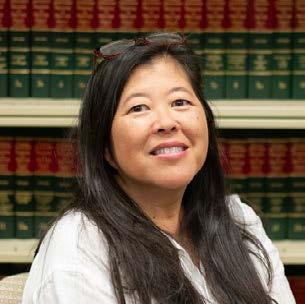
Tina Lum Perrusquia is a counsel and advice attorney with West Tennessee Legal Services. She received her undergraduate degree in communications from Christian Brothers University and her J.D. from the University of Memphis Cecil C. Humphreys School of Law. She previously served as the director of the Pro Se Parents’ Clinic and the Pro Bono Coordinator for the Community Legal Center. Her practice areas have included family law, bankruptcy, and juvenile law.





BY RYAN ROSENKRANTZ AND HAYLIE LOVELACE
On February 10, 2025, Governor Bill Lee signed a state-wide school voucher bill into law.1 Known as the Education Freedom Scholarship Act (“EFSA”), this “education savings account” program was previously limited to Shelby and Davidson Counties but now applies across the state. Tennesseans’ split opinion of school vouchers led to Governor Lee’s state-wide TV and radio campaign in support of the EFSA.2
With February’s adoption of the bill into law, beginning in the 2025-2026 school year, 20,000 school vouchers will be available for use by Tennessee students,3 with each $7,295.00 voucher totaling over $145 million in available voucher funds.4 10,000 scholarships are reserved for students from low socioeconomic backgrounds, while the remaining 10,000 scholarships are available for redemption by any student.5 Beginning in the 2026-2027 school-year, if 15,000 scholarships are awarded in the 2025-2026 school year, an additional 5,000 vouchers will be available for students, with preference given to previous recipients and students from low socioeconomic backgrounds before expanding to additional students.6 The number of scholarships will continue to increase so long as 75% of available scholarships are awarded
1 Tennessee Education Freedom Scholarship Program, Tenn. Dep’T of eDuc , https://www.tn.gov/education/efs.html
2 Vanderbilt Poll: Post-election, core concerns and views of Tennesseans persist, VanDerbilT uniV (Dec. 13, 2024, 6:00 AM), https://news. vanderbilt.edu/2024/12/13/vanderbilt-poll-post-election-coreconcerns-and-views-of-tennesseans-persist/.
3 Tenn coDe ann § 49-6-3504(a).
4 Tennessee Education Freedom Scholarship Program, Tenn. Dep’T of eDuc , https://www.tn.gov/education/efs.html
5 Tenn coDe ann. § 49-6-3504(a)(1)-(2).
6 Id. at § 49-6-3504(c).

each year.7 If the 75% threshold is not met, the current allotment remains the same.
The legislature has allocated about $350 million to support the program through the 2025-2026 school year, and an estimated $191 million is necessary to support the program the following fiscal year.8 As the total number of available scholarships increase yearly, so will allocations with the official fiscal analysis projecting $1.1 billion in costs for the first five years of the program.9
The bill’s “hold harmless” provision will provide supplemental state funds to school districts that see a decline in both student enrollment and funding allocations based on the Tennessee Investment in Student Achievement (“TISA”) formula.10 This “hold harmless” provision purports to make up the difference between prior and current allocations. The bill’s fiscal note projected that 15 out of 140 districts across the state will qualify for aid under this provision in fiscal
7 Id. at § 49-6-3504(b).
8 Marta W. Aldrich, Tennessee universal school vouchers would cost at least $1.1 billion in first 5 years, state projects, chalkbeaT (Jan. 27, 2025, 1:50 PM), https://www.chalkbeat.org/tennessee/2025/01/27/ universal-school-voucher-plan-5-year-costs-analysis/; SB 6001 - HB 6004 Fiscal Note, Tenn. Gen assemb (Tenn. 2025), https://www. capitol.tn.gov/Bills/114/Fiscal/SB6001.pdf
9 Id.
10 Vouchers: Now What?, EdTrust-Tennessee, (Fed. 4, 2025), https:// edtrusttn.org/wp-content/uploads/2025/02/EdTrust-Tennessee_ Vouchers_Now_What_02-07-25.pdf. The TISA formula itself has long been a consistent target of debates and litigation. See, e.g., Daarel Burnette, II, Shelby County Board of Education Files Funding Lawsuit Against State, Chalkbeat (August 31, 2025), https://www.chalkbeat.org/tennessee/2015/8/31/21105581/ shelby-county-board-of-education-files-funding-lawsuit-againststate/
year 2027.11 While the cost of this provision is expected to be small (about $5.3 million) in comparison to the rest of the bill’s price tag, public schools could lose an estimated $50.3 million in fiscal year 2027 due to school vouchers and their resulting increased private school placements.12
Notably, students enrolling in a non-public school waive their right to an individualized education program (“IEP”),13 and undocumented students are ineligible to participate in the voucher program.14 Schools accepting vouchers from third to eleventh grade students are required to participate in standardized testing with respect to those students either through a national test approved by the State Board of Education or the math and English-language arts TCAP.15 The fiscal note anticipates that schools will opt to administer the nationally standardized achievement test.16
Finally, the bill includes a one-time $2,000 bonus to teachers whose school board adopts a resolution affirming participation in the EFSA by June 1, 2025.17
Statewide, more than 150 private schools have already opted to participate in the program. In Shelby County alone, as of April 2025, at least fifty schools have signaled their willingness to accept students.18
11 Id.
12 Id.
13 Tenn coDe ann § 49-6-3509(b). IEPs are legally binding documents outlining the specific supports and services students with a disability (such as dyscalculia, dyslexia, or ADHD) need to make appropriate academic progress. These collaborative documents contain measurable goals that students are expected to achieve during the school year.
14 Id. at § 49-6-3511.
15 Id. at § 49-6-3507(a)(2).
16 SB 6001 - HB 6004 Fiscal Note, Tenn. Gen assemb (Tenn. 2025), https://www.capitol.tn.gov/Bills/114/Fiscal/SB6001.pdf
17 Vouchers: Now What?, EdTrust-Tennessee, (Fed. 4, 2025), https://edtrusttn.org/wp-content/uploads/2025/02/EdTrustTennessee_Vouchers_Now_What_02-07-25.pdf.
18 As listed on the Tennessee Education Freedom Scholarship Program website as of May 20, 2025, the schools are: Bodine School, Bornblum Jewish Community School, Breath of Life Preparatory Academy, Briarcrest Christian School, Brinkley Heights Urban Academy, Central Baptist School, Christ Methodist Day School, Christ the King Lutheran School, Christian Brothers High School, The Collegiate School of Memphis, Concord Academy, Creative Life Preparatory School, Emmanuel United Methodist Kindergarten, Evangelical Christian School, Grace-St. Luke’s Episcopal School, Greater Praise Christian Academy (Lower School and Upper School), Harding Academy of Memphis, Harmony Independent Schools, Heritage Baptist Academy, Highland Day School, Holy Rosary Catholic School, Hutchison School, Immanuel Lutheran School, The Lab
Proponents assert that the bill empowers parents’ school choice, religious freedom, and control over their tax dollars. They assert that students will be welcomed into educational settings otherwise inaccessible to them, and this additional access will create new avenues for opportunity. In response, opponents raise concerns about public tax dollars supporting private school enrollment. It is expected that most participating students will be those who already attend private
School of Memphis, Lambs & Ivy School, Lamplighter Montessori School, The Land Academy Elementary School, Madonna Learning Center, Margolin Hebrew Academy, Memphis Junior Academy, Memphis Performing Arts & Creative Academy, Memphis University School, Mid-South Gifted Academy, New Hope Christian Academy, Our Lady of Perpetual Help Catholic School, Pleasant View School, Presbyterian Day School, PURE Academy, Sensational Enlightenment Academy, St. Agnes Academy - St. Dominic School, St. Ann Catholic School, St. Benedict at Auburndale High School, St. Francis of Assisi Catholic School, St. George’s Independent School, St. Louis Catholic School, St. Mary’s Episcopal School, St. Paul Catholic School, TiptonRosemark Academy, Westminster Academy, Woodland Presbyterian School, and Word of Faith Christian Academy.For an up-to-date list,

Approved for 1.25 General CLE Hours
Presented by:
The Memphis Bar Association's Young Lawyers' Division, Ben F. Jones Chapter of the National Bar Association, and National Black Prosecutors Association
This will be an informative discussion about the history of jury selection; what jury selection looks like in practice, and how a change of venue affects the jury selection process.
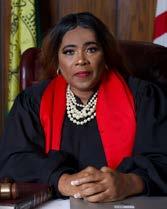

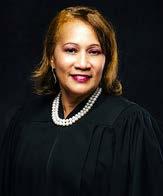


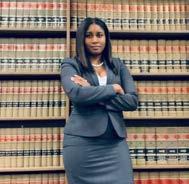






schools.19 Opponents also cite literature suggesting that students receiving school vouchers in Tennessee, like those who receive school vouchers around the country, typically do not demonstrate increased academic performance after their private school placement.20
19 Marta W. Aldrich, Tennessee universal school vouchers would cost at least $1.1 billion in first 5 years, state projects, chalkbeaT (Jan. 27, 2025, 1:50 PM), https://www.chalkbeat.org/tennessee/2025/01/27/ universal-school-voucher-plan-5-year-costs-analysis/
20 See Rachel Wegner, Tennessee school vouchers: Despite test score gains, recipients trail public school peers, Tennessean, (Dec. 31, 2024, 5:06 AM), https://www.tennessean.com/story/news/education/2024/12/31/ tennessee-school-vouchers-esa-test-scores/77322004007/; see also Alison Beale, Despite Tennessee governor’s claims, school vouchers don’t level the academic field, Tennessee lookouT (Jan. 29, 2025, 5:00 am), hTTps://TennesseelookouT.com/2025/01/29/DespiTe-TennesseeG o V ernors - claims - school - V ouchers - D on T - le V el - T he - aca D emicfielD/#:~:TexT=opTion%20for%20many.-,Voucher%20proGrams%20 can %20 D isrup T %20 a %20 s T u D en T ’ s %20 e D ucaT ional %20 paT h %20 an D %20 lea D , brazenly %20 aban D one D %20 by %20 V oucher %20 proGrams
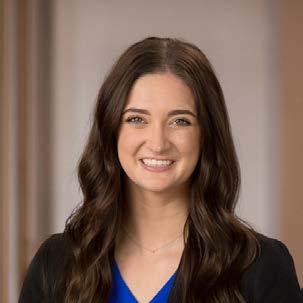
Haylie Lovelace is an associate at Butler Snow’s Memphis office. She is a member of the firm’s Tort, Transportation, and Specialized Litigation practice group. Haylie earned her J.D. from the University of Memphis Cecil C. Humphreys School of Law in 2024. During law school, she served as a Notes Editor for the University of Memphis Law Review, a Dean’s Fellow for the Academic Success Program, and the President of Street Law, where she led community outreach efforts to promote legal education. Before law school, Haylie taught second grade in Memphis through Teach For America.

Ryan L. Rosenkrantz is an associate at Lewis Thomason’s Memphis office. He is licensed in both Tennessee and Arkansas. He focuses his practice primarily in the areas of education law, healthcare liability defense, and general civil litigation. Ryan pursued his undergraduate studies at Rhodes College, where he obtained a degree in educational studies. During his time at Rhodes, Ryan had the unique opportunity to study the Finnish education system during a semester abroad in Jyväskylä, Finland, gaining valuable insights into international education practices. Ryan’s dedication and contributions at Rhodes College were further recognized as he was inducted into the Rhodes College Hall of Fame for the Class of 2019.
After completing his undergraduate studies, Ryan’s commitment to education led to his receipt of a prestigious Fulbright Scholarship to Malta. In Malta, he shared his knowledge and passion by teaching English to Maltese secondary school students, international students attending the University of Malta, and refugees relocated from Africa. This experience broadened his perspective on the power of education and the importance of supporting diverse communities.
Upon returning to the United States, Ryan chose to continue his educational journey and attend law school. His aspiration as a lawyer is rooted in a desire to give back to his community and make a positive impact, especially in support of school systems and education.




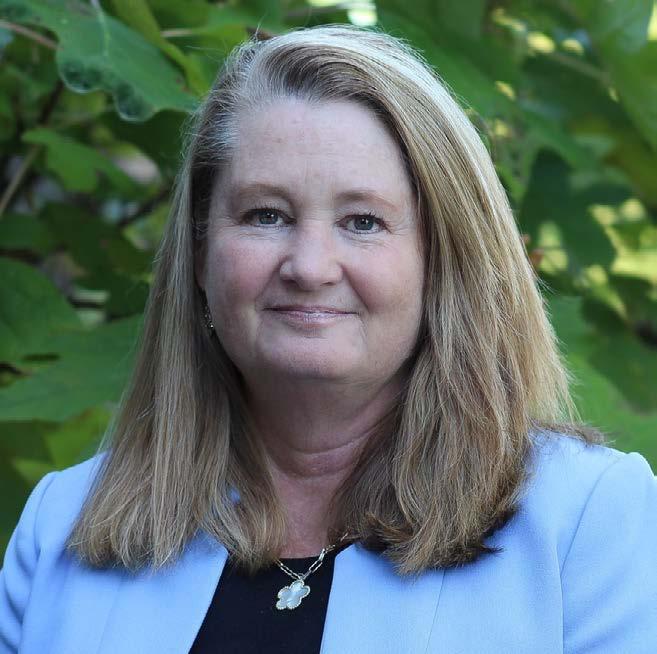



Doni Mills | Account Executive
Email: dmills@veritext.com
Direct: (901) 521-3864
Cell: (662) 689-1102
EXHIBIT CAPTURE
See your testimony in action. Capture compelling content by displaying electronic documents to a witness and recording computer interaction in realtime.
EXHIBIT SHARE
Introduce and share electronic exhibits with all local and remote participants through the use of your laptop or iPad. No need to print and ship multiple copies of documents.
ACE “ADVANCED
Ongoing hyperlinked and searchable PDF exhibit list updated after each deposition. No Wi-Fi necessary.

VERITEXT VIRTUAL
Depose witnesses remotely and share exhibits in realtime with many participants. Easily connect with any webcam-equipped device, speakerphone and the internet.
VIDEO TECHNOLOGIES
Employ broadcast-quality legal videography, videostreaming, video synchronization and videoconferencing to enhance testimony.
MYVERITEXT.COM
Schedule depositions and access transcripts and exhibits online from anywhere, anytime for free.

BY JESSICA J. COTTON, ESQ.
In the Memphis legal landscape, minor and unmarried fathers face significant hurdles in establishing paternity and asserting their rights to custody or visitation. Despite their desire to be involved and responsible parents, these young men often encounter a maze of legal barriers, complex court procedures, and a lack of clear guidance tailored to their unique status as minors.
Under Tennessee law, the mother is the default legal custodian of a child born outside of marriage—unless a court order states otherwise. For minor fathers, asserting their parental rights begins with establishing paternity, either through the Voluntary Acknowledgement of Paternity (VAoP) or court-ordered DNA testing. However, minors face an added challenge: they must obtain parental consent to even sign the VAoP, and they often require a guardian or representative to initiate court proceedings on their behalf.
The Community Legal Center (CLC) sees firsthand how overwhelming this process is for young fathers who lack access to legal support or an understanding of their rights. Many of them are eager to be part of their children’s lives but are unsure how to navigate a system that feels inaccessible and, at times, unwelcoming.
CLC’s Pro Se Parents’ Clinic provides legal education and hands-on assistance with the forms and petitions necessary to establish paternity and child support. It works to dismantle the myths and stigma surrounding child support—helping parents see it not as a punishment but as a vital tool for shared responsibility and stability.
Whether the client is a minor or adult parent, CLC equips them with the knowledge, confidence, and legal tools needed to represent themselves effectively in matters of paternity, child support, and custody.
The work described above is part of our Access and Visitation Program, a vital component of the Pro Se Parents’ Clinic. We also partner with A Fathers Involvement Really Matters (AFIRM) to support adult unmarried fathers navigating similar challenges. In addition to paternity and custody support, the Pro Se Parents’ Clinic also provides guidance for pro se divorce petitioners, helping them through every stage of the divorce process.
CLC is based in Memphis, Tennessee, and it is always looking to expand its network of community partners and legal professionals. If you’re interested in collaborating, referring clients, or learning more about how it serves families in need, please visit its website at www.clcmemphis.org or contact its office directly.
If you’d like to support CLC’s mission, donations to CLC help sustain and grow the services it provides to vulnerable members of the community. You can make a gift online at https://clcmemphis.org/donate/ or reach out directly to Interim Executive Director Betsy Prendergast at betsyp@clcmemphis.org to learn more about other ways to contribute.
Together, we can help ensure every parent—regardless of age or income—has the tools and support to advocate for their family and their future.

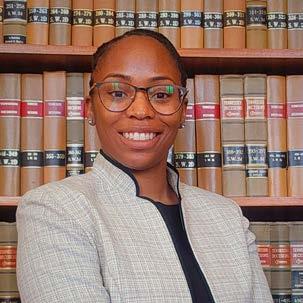
Ms. Cotton is an Army Veteran with over 14 years of Active Service. During Jessica’s final assignment in the Army as a JAG Officer, she practiced as a Military Justice Advisor, Trial Counsel, and Special Assistant U.S. Attorney for the United States District Court for the District of Arizona. Before coming to CLC, Ms. Cotton managed her own Private Public Interest Law firm where she served only indigent clients in the Mobile, Alabama, community. She also founded a non-profit wellness organization called Strong Temple Inc. Ms. Cotton previously served as Director of CLC’s Pro Se Parents’ Clinic. She now works at The Law Office of Jessica J. Cotton PLLC and has been appointed Shelby County Deputy Divorce Referee.
Jessica earned her Bachelor of Science in Business Administration from Columbia College and her Master of Laws in Advocacy and Dispute Resolution and Juris Doctor from Faulkner Law School. She is a member of the Alabama State Bar Association and U.S. Court of Appeals for the Armed Forces and registered to Practice with the Tennessee Board of Law Examiners. She’s also an active member of the Memphis Bar Association and Alpha Kappa Alpha Sorority, Inc.
Jessica loves helping others through her skills and testimony. She loves children, fitness, and serving others. Jessica spends her free time coaching at Mayweather Boxing and Fitness in Germantown, watching tv, and hanging out with her daughter.


BY BILL GIBBONS
In the 2024 session of the Tennessee General Assembly, legislators enacted a form of “blended sentencing” as part of our juvenile justice system. For serious youthful offenders, the law now blends a required disposition with a part that is contingent. The new law took effect on January 1, 2025. About 20 states have some form of blended sentencing for serious juvenile offenders. Now, Tennessee joins the list of those states.
While states vary in their blended sentencing approaches, the concept is a blend of a traditional juvenile disposition combined with an extended disposition beyond the juvenile justice system’s normal age limit. Blended sentencing offers an opportunity for many serious youthful offenders who would otherwise be trapped in a cycle of gun and gang violence to break out of that cycle and become productive members of our community. In the case of Tennessee’s new law, it is a way of encouraging a change in behavior.
Some states with blended sentencing have fixed dispositions for a certain period of time, while other states determine the length in part based on the offender’s conduct while under supervision, which is the case under Tennessee’s new law. In some states, blended sentencing involves an extension of the juvenile justice system’s jurisdiction beyond the normal age limit. This is also the case under Tennessee’s new law.
In other states, blended sentencing involves a combination of time in the juvenile system and additional time in the adult system based on the offender’s behavior. It offers offenders an opportunity to avoid time in the adult system if they appropriately comply with requirements under the juvenile part of the disposition.
Another approach is a system for those with blended sentences that is totally separate from both the juvenile system and the adult system. Tennessee’s new law does not create this separate system.
The purpose of our state’s juvenile justice system is, in part, to provide “a program of treatment, training[,] and rehabilitation.” T.C.A. 37-1-101(a)(2). Yet, an arbitrary age limit interferes with juvenile courts’ ability to achieve that purpose. Until this year, under state law, whether in a secure facility or in the community, supervision under our juvenile system ended no later than the offender’s 19th birthday. And chances were high under our state law that the disposition would not be for a fixed determinate time. Any confinement or community supervision could be for an indeterminate period but not beyond the arbitrary 19th birthday limit.
Take a 17-year-old repeat carjacker. Whether you are for accountability or rehabilitation—and I’m for both— ending all supervision no later than the offender’s 19th birthday is not an acceptable solution. Until now, the only alternative to that arbitrary limit under state law was to transfer the juvenile offender to the adult system. We needed a third option, and the new blended sentencing law offers that.
The new third option eliminates the arbitrary 19th birthday limit and extends the juvenile courts’ jurisdiction over serious juvenile offenders, providing more time for rehabilitation when appropriate.
Under the new law, upon being designated a “serious youthful offender” for committing a serious delinquency

offense, the juvenile court judge imposes an additional disposition beyond the offender’s 19th birthday. The juvenile court judge must then stay the additional disposition pending a hearing near the offender’s 19th birthday to determine whether the offender has met certain conditions or needs more time for rehabilitation. So, it’s a blend of one disposition up to age 19 followed by an additional contingent disposition beyond the offender’s 19th birthday.
Here is a more detailed breakdown of how the state’s new blended sentencing law works:
The court classifies a juvenile14 years of age or older as a serious youthful offender if the juvenile is:
Adjudicated delinquent for committing or attempting to commit first or second degree murder and less than 16 years of age (with the state’s transfer law kicking in if 16 or older);
Adjudicated delinquent for rape or aggravated rape, rape or aggravated rape of a child, aggravated or especially aggravated robbery, especially aggravated burglary, aggravated or especially aggravated kidnapping, commission of an act of terrorism, carjacking, aggravated child abuse or aggravated child neglect or endangerment; any other Class A or Class B felony offense involving use of a deadly weapon; or criminal attempt to commit any Class A felony on the list if there has been a prior adjudication of delinquency for any of the offenses listed; Adjudicated delinquent for any offense on the list for the first time and the district attorney asks the court to classify the offender as a serious youthful offender. T.C.A. §§ 37-1-131(g)(1) and (2).
If a juvenile is alleged to have committed an act that would require being classified as a serious youthful offender, the accused shall have a right to a jury trial in circuit or criminal court. T.C.A. §§ 37-1-124(d)(1) and (4)(A).
If the jury finds the juvenile is delinquent, then the case is returned to juvenile court for disposition. T.C.A. §§ 37-1-124(d)(4)(B) and (C).
Unless good cause is shown, the jury trial must be held within one year of the juvenile being advised of the right to a trial by jury. T.C.A. § 37-1-124(d)(7)(B).
The right to a jury trial can be waived, in which case juvenile court will adjudicate delinquency. T.C.A. §§ 371-124(d)(3) and (5).
Once someone is adjudicated to have committed a serious youthful offense, a bifurcated (blended) disposition must be imposed (but the second part not
necessarily carried out).
The first part is a determinate disposition up to the offender’s 19th birthday. T.C.A. § 37-1-131(g)(3).
The second part of the disposition covers the period after the offender turns 19 and ends on or before the offender’s 24th birthday. Just like the initial disposition, the additional disposition may include probation. The minimum additional disposition time is four years if the offender is adjudicated delinquent for a Class A felony and three years if adjudicated delinquent for a Class B felony. T.C.A. §§ 37-1-131(g)(4)(A) and (B).
Importantly, the court must stay the second part of the disposition beyond the offender’s 19th birthday. T.C.A. § 37-1-131(g)(5)(A).
Within four months of the offender’s 19th birthday, the juvenile court conducts a recorded hearing to decide whether to actually invoke the additional disposition. If the additional disposition is not invoked, the juvenile court enters an order terminating supervision. T.C.A. §§ 37-1-131(5)(B) and (7).
There are five factors for the court to consider in deciding whether to invoke the additional disposition. If three of the five factors exist, the juvenile court must invoke the additional disposition. T.C.A. § 37-1-131(5) (C). The five factors are whether the offender: Committed another delinquent act;
Engaged in other conduct that creates a substantial safety risk;
Failed to meet the conditions of supervision;
Failed to attend school regularly with passing grades unless prevented by illness, graduate from high school, obtain a high school equivalency credential, or regularly attend a Tennessee college of applied technology with passing grades; or
Failed to obtain regular employment or enroll in college if the offender has graduated from high school or obtained a high school equivalency credential. T.C.A. §§ 37-1-131(g)(5)(B)(i)-(v).
If the juvenile court invokes the second part of the disposition, the Tennessee Department of Correction is responsible for supervision. Supervision may be in the form of probation or in a secure facility, which must be separate and removed from the general adult population housed by the Department, with the Department to take into consideration the proximity of the facility to the offender’s home. T.C.A. §§ 37-1-131(g)(6) and (9).
During the time of supervision by the Department of Correction, the juvenile court retains its powers,

including the power to preside over probation revocation hearings. T.C.A. § 37-1-131(g)(10).
Our state’s criminal code treats anyone 18 years old or older who is charged with a crime as an adult. Just like anyone else, if a designated serious youthful offender is charged with a new crime after turning 18, the offender will automatically be tried as an adult for the new crime. But extending rehabilitative services under blended sentencing will reduce the likelihood of that person becoming a repeat offender as an adult—which will benefit both the offender and the community.
There are provisions in the new law that could use some clarification. For example, in considering whether to invoke the additional disposition beyond the offender’s 19th birthday, the factor of whether the offender engaged “. . . in other conduct that creates a substantial safety risk” is a rather subjective factor and needs to be clarified.
See T.C.A. § 37-1-131(g)(5)(B)(ii).
Some critics of the blended sentencing legislation seem unaware of its intent, believing it is an attempt to warehouse serious youthful offenders. Currently, very few serious juvenile offenders found to be delinquent by juvenile courts end up in secure facilities. Instead, they are supervised in the community. That community supervision will likely not change with the new law, if for no other reason than the Tennessee Department of Children’s Services (DCS) has very limited secure bed space for those offenders.
Such critics also call the extended blended disposition an adult sentence, with a strong likelihood of serving it in an adult prison. In reality, the possible additional disposition beyond an offender’s 19th birthday is an extension of the juvenile justice system and the juvenile court jurisdiction. Juvenile court judges will be able to impose additional time for community supervision with appropriate rehabilitative services.
Due to concerns over litigation alleging that the additional contingent disposition was somehow a sentence under the adult system, the right to a jury trial was a last-minute amendment to the 2024 legislation. But before enactment of the legislation, the juvenile justice system already covered 18-year-old adults found delinquent before turning 18. The legislation extends the juvenile system’s jurisdiction further under certain circumstances. (There is legitimate concern that the right
to a jury trial could significantly slow down disposition of cases. Time will tell.)
Some critics’ confusion may be because the legislation places responsibility for any supervision after the offender’s 19th birthday with the state’s Department of Correction rather than DCS. DCS is simply not equipped to supervise youthful offenders in their 20s. Historically, our juvenile system was the responsibility of the Department of Correction, which oversaw Tennessee’s juvenile system up until the mid-1990s. It can do so again for the limited purpose of handling blended sentencing beyond the offender’s 19th birthday. That supervision will probably involve setting up a special program for community supervision separate from standard adult probation and, in those cases where a secure facility is appropriate, setting up an operation separate from the standard adult prison population, as required by the legislation. T.C.A. § 37-1-131(g)(9).
The extended supervision approach of blended sentencing offers an opportunity to include coordinated parental and family support. As services are coordinated, it will be important to effectively identify and address root causes and structural barriers to reconnecting youthful offenders and their families through appropriate treatment and resources.
For those designated under blended sentencing as serious youthful offenders, there can potentially be a lack of consistent supervision and trauma responsive services. Proper accountability will be essential to ensure that such services as cognitive behavioral therapy and family intervention support are provided to decrease the likelihood of going deeper into the criminal justice system.
As just one example locally, Youth Villages’ Memphis Allies initiative provides intensive services to serious youthful offenders and their families. Under its SWITCH and SWITCH-Youth programs, it is offering cognitive behavioral therapy and other services with promising results. Such a program—whether by Youth Villages or others—can be beneficial to those under extended supervision.
In 2023, according to data from the Juvenile Court of Memphis and Shelby County, 402 juveniles faced 875 serious violent delinquency charges (an average of

a little over two per person). The three categories with the highest frequency of charges in 2023 were aggravated assault, aggravated robbery, and carjacking (with most of the charges in these three categories involving guns). Of course, these figures are arguably the tip of the iceberg because they only represent those incidents in which someone has actually been charged, not those incidents which remain unsolved.
In a public opinion poll conducted by Public Opinion Strategies for the Memphis Shelby Crime Commission, an overwhelming 87% of respondents supported a change in state law so that serious violent juvenile offenders would be able to receive rehabilitative services beyond their 19th birthdays. So there is strong support for the blended sentencing approach. We must implement it with fidelity.
The new blended sentencing law applies to certain delinquency charges brought as of January 1, 2025. In Shelby County, blended sentencing will apply to delinquency cases in the pipeline. Prosecutors, public defenders, other defense attorneys, and juvenile court magistrates must receive training to understand clearly the new blended sentencing process. And the state Department of Correction needs to understand the processes in our juvenile court system as well as its responsibilities under the new law.
Blended sentencing can serve as a tool to extend rehabilitative services and also hold juvenile offenders more accountable than the standard juvenile system in a way that avoids an adult sentence. By providing a third path other than the typical juvenile system disposition and transfer to the adult system, blended sentencing is a graduated response that can be important in combating serious juvenile crime and changing behavior. If implemented as intended, blended sentencing will improve our juvenile justice system. It will result in more rehabilitation and accountability and help salvage the lives of many youthful offenders before they continue down the path of criminal behavior.
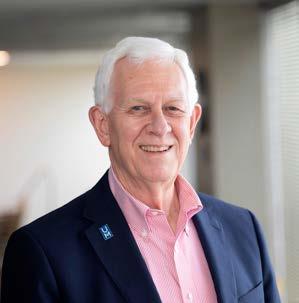
Bill Gibbons serves as executive director of the University of Memphis Public Safety Institute and president of the Memphis Shelby Crime Commission. He has served as commissioner of the Tennessee Department of Safety and Homeland Security and as district attorney for Shelby County. Before that, he was a partner in the law firm of Evans & Petree. He received both his undergraduate and law degrees from Vanderbilt University.
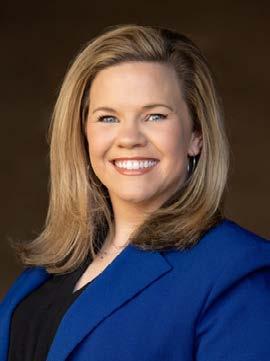
Attorney Fyke will provide a refresher course and overview for all Guardian Ad Litems appointed or retained in divorces, including GAL duties under statute; case law updates; a checklist for attending or prospective GALs; what most judges expect from GALs; an overview of the role of a GAL for non-GAL attorneys who ask for GALs to be appointed, and the GAL role in mediations and depositions


04/24/2024 • 12:00 PM
Good afternoon,
SHELBY
It is truly an honor to be with you all today to commemorate our beloved members of the Shelby County Bar who have left us in the past year. Although they have all passed on to their ultimate reward, we are still here and must deal with the gravity of their loss individually and collectively.
We, as lawyers, are very fortunate. We are educated and trained in the same disciplines as our colleagues. After our training, we splinter and spread in many different directions, each going his own way, but nevertheless, bound by our common cause – the practice of law. Being a lawyer is a “state of mind;” it is not necessarily speaking a certain way, dressing in a particular style, or even working in a prestigious place. It is being able to think, prepare, analyze, counsel, and deliver legal concepts, while being direct, yet without being a barrier, helping others to find direction. A good attorney excels at this while using the law as the GPS in navigating his way. For example, a brick mason can build a beautiful, intricate brick wall that stands at the end of the day for all to see the mastery of his work. The law is far more abstract and virtual. The magic is conceived and orchestrated by the lawyer who uses his intellect, imagination, character, and integrity to accomplish his work, and through the results, he leaves a legacy as real and long-lasting as the mason’s brick wall. Their reputation grows and leads to an amazing wealth of wonderful legal contributions that transcend time. The people we are honoring will remain alive in our hearts and minds through their love of the law and the craft they so ably practiced.
We are gathered here today, in this holy space, to honor our loved ones, our colleagues, our judges, all who served in their various capacities, some known better than others, but each one known and loved by people in this very sanctuary, all important and will be missed.
James T. Allison
He was always witty and quick on his feet. I remember a law bar function where he wrote the skit in which he was a biker and I was a leather-clad, teased, peroxided hair, biker chick named “Trixie,” which he continued to call me until his last appearance in court, when he addressed me for the last time as “Judge Trixie”!
Honorable Joyce Broffitt
She was such a lovely person who worked with me in the DA’s office and went on to be a beloved judge. Oh, that smile! She was always kind, patient, and a delight to practice before.
Mike Cody
He was larger than life. His legacy of running is significant, as is his mark left upon the legal community. A career of service: serving his city, his county, his state, and his country. There are not enough accolades to describe him…Mike Cody…
Darnell “Don” Dowden
He was a wonderful attorney, an avid storyteller (in a good way), loved the law, but really loved sailing and telling tales. I was fortunate to have listened to him on many occasions and enjoyed his colorful pirate stories.
Honorable Donna Fields
She was my college dorm mother, who went on to night school at the University of Memphis Law School, where I followed. She practiced law and was in the Public Defender’s office. We fought it out in the courtroom numerous times, but always emerged as friends when we walked out. When she became a judge, she was loved by all, especially her menagerie of animals. Her bright smile and happy face will remain in our hearts.
Monroe Waldmar Gibbs, Sr.
He was a gentleman and an excellent lawyer, always courteous, and loved his time in court. He was respected and well thought of by his peers.

Will Griffin, Sr.
He was a man for all seasons: a successful attorney, a husband, a family man, and a lifelong friend. I knew him for over 50 years, and he and his family were a part of the tapestry of my life. Will was there to help, support, and advise others unselfishly. He will be missed.
Jack Lewis Halliburton
He was a dynamic litigator, very enthusiastic about his cases, very dapper, and enjoyed a good debate. Sometimes he didn’t want to stop debating. He was a pleasure to work with.
Ronald Maury Harkavy
He was an extraordinary friend, husband, father, and the man who gave us Allen, who left the practice of law to lead tours in Jerusalem, a great contributor, and a mentor to so many young lawyers with judicial aspirations, especially me - I’ll never forget his generosity and interest.
Matthew Heiter
He was a very skilled and respected lawyer who loved soccer. He was a hard worker and will be remembered.
John D. Horne
He was a former Sigma Chi, UT cheerleader at UTK, and married a dear friend. He was an exemplary lawyer and a family man. I will not forget that once in a difficult case, while discussing it in my chambers in an attempt to mediate the case, he referred to me as “Chancellor Gardner.”
Michael Johnson
He was a fine man, you simply could not dislike. He was a career Public Defender and always got the best offers because he led with mercy and compassion. A real favorite in Criminal Court and uniformly mourned by all.
Honorable Ronald Spearman Johnson
He was our beloved Public Defender and later, a judicial commissioner who retired in 2010. He was very understated and left no stone unturned in representing his clients.
James “Jim” Albert Lawrence
He was a prince of a fellow, an excellent lawyer who exhibited a military presence in the courtroom and demonstrated excellent courtroom decorum. He was an officer and a gentleman.
Mike Mitchell
This one hurts. He was kind, gentle, and one of the most generous people to have ever lived, liked by all, and ready
to help out. We feel a hole in the General Sessions Civil Court since he left.
Lytle Nichol
He was a true scholar, joining Evans Petree & Cobb in 1964, with a career spanning over 59 years of practice. He was a wonderful man with the best big laugh you have ever heard.
Johnny Raspberry
He was a tremendous man and always laughing. He had the most positive attitude through good times and bad. Most recently, he fought a brave and final battle with his illness.
Lorenzo Derek Renfroe
He was a seasoned lawyer who was ready to bat’em up in court. He ran against me in 2002 in a hard-fought battle, and afterwards we were friends for 23 years. Things like this demonstrate the wonder and resiliency of our MBA. One day we are adversaries, and the next day we stand together.
Julia “Judy” Stokes Sayle
She was one of the first ladies of the law and strongly encouraged young lawyers. Since I was only the second woman in the DA’s office, she taught me how to fit in. She was an excellent attorney.
Thank you for indulging me in this little walk down memory lane, remembering each of these 19 people! Our world and particularly our Bar Association were so enriched and fortunate to have been blessed by these dear souls. I know that they are with us at this moment and can feel our outpouring of prayers of love and gratitude. Rest in peace, sweet ones. We love you, we miss you, and we will see you again. AMEN.
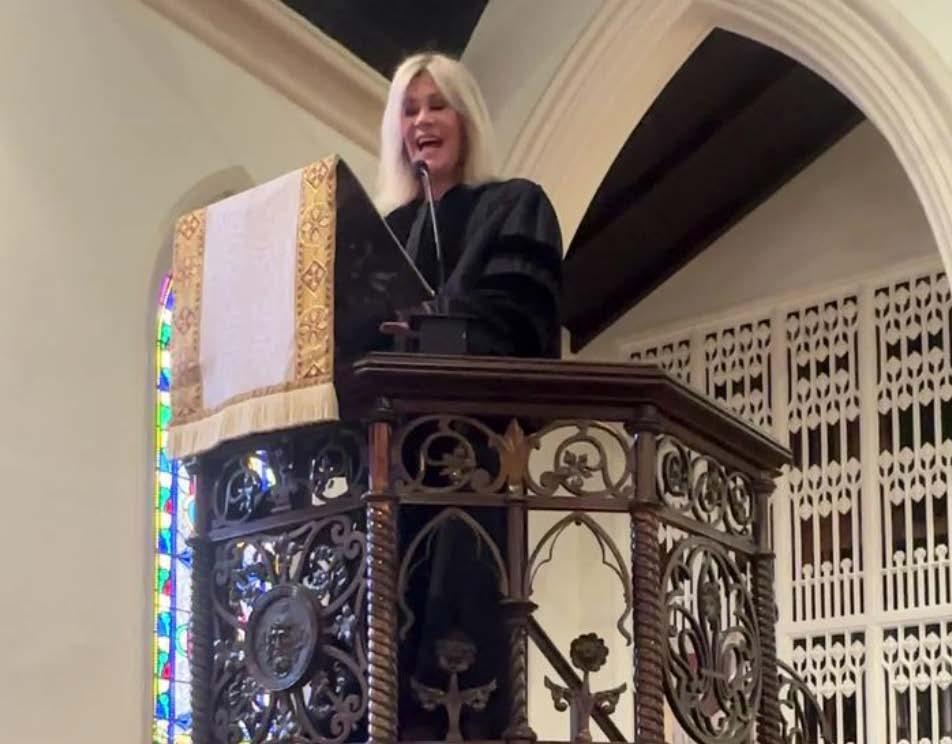

covers jury and bench trials from January 1, 2025 - June 6, 2025
DISTRICT JUDGE S. THOMAS ANDERSON
No trials.
SENIOR DISTRICT JUDGE J. DANIEL BREEN
Lorri Watson and Charles Watson v. United States of America, No. 23-1041
Bench Trial from March 3-4, 2025
Attorney for Plaintiffs: David Siegel
Attorneys for Defendant: Jason Martin and Stuart Canale
• Claims in Complaint: Car accident and alleged negligence by the FBI under the Federal Tort Claims Act.
• Verdict: The parties filed their post-trial briefs on May 28, 2025. Judge Breen’s decision is forthcoming.
DISTRICT JUDGE JOHN T. FOWLKES, JR.
No trials.
CHIEF DISTRICT JUDGE SHERYL H. LIPMAN
USA v. Stanley Anyanwu and Vitalis Anyanwu, No. 24-20211
Trial from April 14-16, 2025
Attorneys for Prosecution: Scott Smith and Reid Manning
Attorney for Defendant Stanley Anyanwu: Steve Leffler
• Attorney for Defendant Vitalis Anyanwu: Unam Peter Oh and Greg Gookin
• Charges in Indictment: One count of conspiracy to commit wire or bank fraud against both defendants and one count of conspiracy to commit money laundering against both defendants.
• Verdict: Guilty on all counts.
Trial from May 19-21, 2025
Attorneys for Prosecution: Regina Brittenum and Ashleigh Atasoy
Attorney for Defendant: Taurus Bailey
• Charges in Indictment: Two counts: (1) One count of unlawful possession of a firearm by a convicted felon on December 21, 2021, and before the defendant committed this offense, he had at least three previous convictions for either serious drug offenses or violent felonies committed on occasions different from one another under the Armed
Career Criminal Act and (2) One count of unlawful possession of a firearm by a convicted felon on January 19, 2022, and before the defendant committed this offense, he had at least three previous convictions for either serious drug offenses or violent felonies committed on occasions different from one another under the Armed Career Criminal Act.
• Verdict: The Government dismissed Count 1 of the Indictment without prejudice on May 16, 2025. Judge Lipman declared a mistrial after the jury could not reach a unanimous verdict on Count 2.
USA v. Vincent Grant, No. 23-20071
Trial from May 30-June 5, 2025
Attorneys for Prosecution: Lisa Thelwell and Christopher Usher
Attorney for Defendant: Kevin Whitmore
• Charges in Indictment: One count of causing death by use of a firearm during and in relation to a crime of violence.
• Verdict: Guilty.
USA v. Quantrese Brazzell, No. 23-20237
Trial from January 27-30, 2025
Attorneys for Prosecution: Michelle Kimbril-Parks and Greg Allen
Attorney for Defendant: Juni S. Ganguli
• Charges in Indictment: One count of possession of fentanyl with intent to distribute and one count of unlawful possession of a firearm by a convicted felon.
• Verdict: Guilty on both counts.
Andrea Jaye Mosby v. Reaves Law Firm, PLLC
Trial from May 5-7, 2025
Attorneys for Plaintiff: Billy Ryan and Janelle Crandall Osowski
Attorneys for Defendant: Jonathan Hancock, Mary Katherine Smith, and Dean Shauger
• Claims in Complaint: Retaliation under Title VII, the Equal Pay Act, and the Fair Labor Standards Act.
• Verdict: The jury found for the plaintiff on all claims and awarded $258,269.27 in backpay, $516,538.54 in compensatory damages, and $2.5 million in punitive damages.

USA v. Austin Lineback, No. 24-20043
Trial from January 6-7, 2025
Attorneys for Prosecution: Eileen Kuo and Lynn Crum
Attorneys for Defendant: Ned Germany and Robert Thomas
• Charges in Indictment: One count of knowingly possessing and knowingly attempting to possess material that contained an image of child pornography.
• Verdict: Guilty.
Sedric Ward v. Shelby County, No. 20-2407
Trial from February 4-5, 2025
Attorneys for Plaintiff: SaraEllen Hutchison, Thomas Jarrard, and Robert Mitchell
Attorneys for Defendant: Joseph Leibovich and Jasen Durrence
• Claims in Complaint: This trial is the second in this case. Ward was an Army reservist working at the Shelby County Jail. After he was fired in 2015, he entered into a settlement agreement related to his termination. Four years after he signed that agreement, he sued Shelby County under USERRA regarding his termination. The first jury found for Ward and awarded $1.5 million in damages. The Sixth Circuit reversed and ordered this second jury trial on a single issue: whether Ward believed the benefits in the agreement outweighed those from his USERRA claim.
• Verdict: The jury found for Shelby County.
USA v. Michelle Mannie, No. 24-20115
Trial from April 7-9, 2025
Attorneys for Prosecution: Regina Brittenum and Ashley Finch Moore
Attorneys for Defendant: Greg Gookin and Unam Peter Oh
• Charges in Indictment: One count of knowing possession of a machine gun.
• Verdict: Guilty.
USA v. Jaylen Simpson, No. 24-20218
Trial on April 15, 2025
Attorneys for Prosecution: Ashleigh Atasoy and Stephen Hall
Attorneys for Defendant: Ned Germany and Robert Thomas
• Charges in Indictment: One count of carjacking with intent to cause death and serious bodily harm resulting in serious bodily injury from a gunshot wound to the abdomen that caused a substantial risk of death and knowing use, carry, and discharge of a firearm during and in relation to a crime of violence under 18 U.S.C. § 924(c).
• Verdict: During voir dire, the defendant entered an open plea in court to the indictment.
Robert A. Watson v. Golden North Van Lines, Inc. and Serena Kraft, No. 24-2227
Trial from June 9-13, 2025
Attorneys for Plaintiff: Danny Van Horn and Andrew Schrack
Attorneys for Defendants: D. Morgan Murphy and John R. Branson
• Claims in complaint: The complaint alleged two claims: defamation and tortious interference with business relationships.
• Verdict: The jury found for the plaintiff on his defamation claim and for Defendants on his tortious interference with business relationships claim. The jury awarded damages in the following amounts: $150,000 for lost wages, $100,000 for lost benefits, $100,000 for emotional distress, and $100,000 for damage to the plaintiff’s reputation, for a total of $450,000 in compensatory damages. The jury also found that Defendants acted intentionally, recklessly, or with malice and awarded $325,000 in punitive damages, for total damages of $775,000.00.
USA v. Calvin Watkins, No. 24-20045
Trial from February 24-28, 2025
Attorneys for Prosecution: Bryce Phillips and Greg Allen
Attorneys for Defendant: Mr. Watkins proceeded pro se with Christopher Sullivan as elbow counsel.
• Charges in Indictment: One count of possession of methamphetamine with intent to distribute.
• Verdict: Guilty.
USA v. Pierre Jones, No. 24-20158
Trial from March 3-6, 2025
Attorneys for Prosecution: Eileen Kuo and Ashley Finch
Moore
Attorneys for Defendant: Robert Thomas and Ned Germany
• Charges in Indictment: One count of unlawful possession of a firearm by a convicted felon.
• Verdict: Not guilty.
USA v. Jairus Bates, No. 23-20230
Trial from March 24-27, 2025
Attorneys for Prosecution: Jermal Blanchard and Regina Brittenum
Attorneys for Defendant: Unam Peter Oh and Greg Gookin
• Charges in Indictment: One count of unlawful possession of a firearm by a convicted felon.
• Verdict: Guilty. The jury also returned a special verdict finding that Defendant did not have three previous convictions for offenses that were committed on occasions different from one another.
No trials.



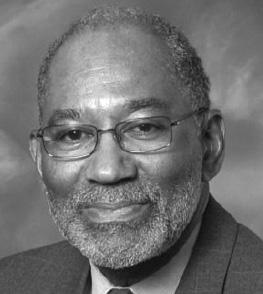
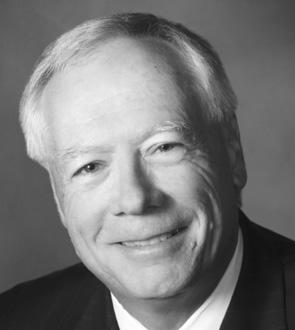
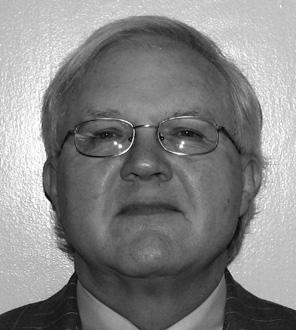



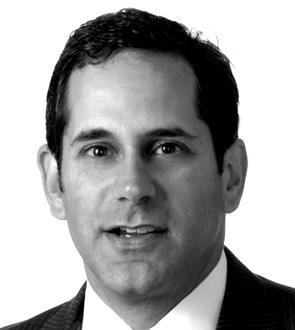



BY DAVID L. BEARMAN
F“And
into the forest I go, to lose my mind and find my soul”– John Muir
ull disclosure: I am not in any way, shape, or form, an expert in “well-being.” Any experience I have in that area lies in the lack thereof. Nor am I an expert in photography or nature. Who better then to write an article about how nature photography helps my sanity? Certainly, no one reading this article needs a reminder about the stress associated with the practice of law: deadlines, opposing counsel, clients, pressure to bill, emails, texts, and did I mention emails? We all need an escape route. Your escape might be running a marathon (makes my knees hurt to even think about it), rock climbing (again, the knees; also lack of arm strength and fear of heights), reading (better on the knees), hunting, golfing, playing music, or traveling. Mine is nature photography.

Photography forces me to focus on something other than work. It makes me curious, humble, quiet, and grateful. Every time I head out to the woods, it is a unique experience. The weather is different, new birds are coming through, water levels have gone up or down, leaves are filling out or falling, colors are changing, sunrise and sunset times are shifting. Observing nature has been a remarkable way for me to learn more about how the world works. For example, in the Memphis area, late fall brings short-eared owls and northern harriers, spring signals the arrival of hummingbirds and wildflowers, and summer is close when Mississippi kites begin circling above the fields. Occasionally, I get to experience something extra special like bald eagles sitting on their nest, a bobcat slinking into the tall grass, an incredible sunrise, or an


osprey plummeting out of the sky into the water to grab a fish. Here is the good news: anyone can do it. All you need to do is get outside and pay attention—listen for birds, look for movement in the trees, and make sure the vine you are about to grab isn’t poison ivy or a snake. The hard truth is that every one of us is replaceable at work. We are not, however, replaceable to our families and friends. Many of us know the toll that stress can take on our bodies. So, do something—whatever it is that allows you to get your mind off work. If you don’t know how to start whatever it is that you want to do, just ask someone or join a group. Don’t put it off. Take care of yourself.

David Bearman is of counsel at Baker Donelson Bearman Caldwell & Berkowitz. Mr. Bearman has extensive experience handling complex litigation in state and federal courts. He has represented clients in a variety of matters including business and contract disputes, interstate water rights, the First Amendment, civil rights, torts, and consumer protection. Mr. Bearman is a strong advocate of giving back to the community and providing pro bono legal service.


In 2025, the Memphis Bar Foundation is proud to support the following non-profits in law-related projects and programs through our charitable grants:
A Way Out Ministries
Amigo Community Center
Asha’s Refugee
Bevo Boys Fitness Academy BRIDGES
CasaLuz
Community Legal Center
CRG Foundation
Dorothy Day House of Hospitality, Inc.
Greenwood Villages Development
Hospitality Hub
I Am My Sister’s Keeper
Kindred Place, Inc.
Latino Memphis, Inc.
Memphis Area Legal Services
Memphis Dream Center
Memphis Public Interest Law Center
Meritan, Inc.
MidSouth Community Justice & Mediation Center, Inc.
Mid-South Immigration Advocates
National Civil Rights Museum
Operation Taking Back 901 REACH
Shelby County Drug Court
Tennessee Innocence Project
Thistle & Bee Enterprises
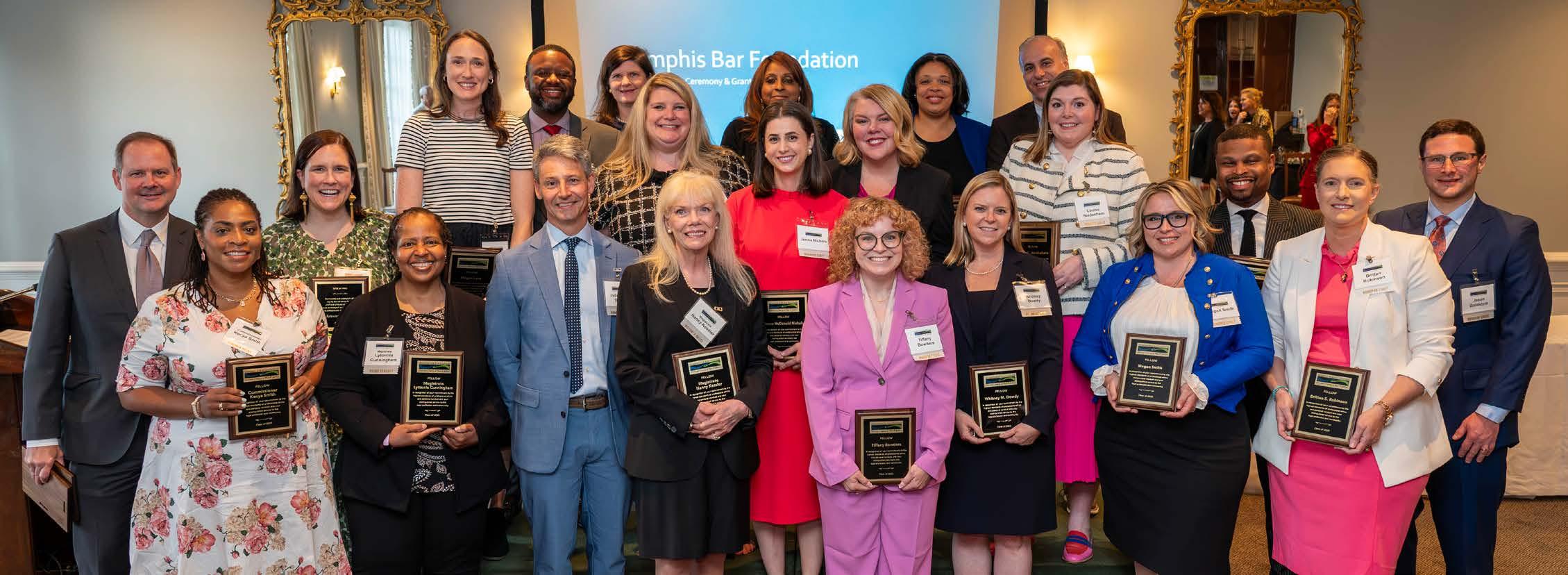
The Memphis Bar Foundation annually selects attorneys and judges as Fellows in recognition of their service to the legal profession and community and their adherence to the highest standards of professional conduct. Approximately 1% of Memphis area attorneys and judges are invited to join each year.
The 2025 Memphis Bar Foundation Fellows are as follows:
Commissioner Mischelle AlexanderBest
Gray W. Bartlett
Louise C. Biedenharn
Semmes Bobo
Tiffany Bowders
Magistrate Lyttonia Cunningham
Whitney M. Dowdy
Judge J. Ross Dyer
Lee Flaherty
Judge Timothy Francavilla

Elizabeth L. Friary
Judge Greg Gilbert
Jason M. Goldstein
Abigail D. Hall
John Alexander Irvine, Jr.
Jake A. Kasser
Magistrate Nancy Kessler
Rachel Lambert
Megan Lane
Keating Lowery
David E. McKinney
Jerrick D. Murrell
Jenna McDonald Nichols
Madeline L. Nolan
Brittan S. Robinson
Commissioner Kenya Smith
Megan Smith
Harley Steffens
Carla Taylor
William Terrell
Monica Timmerman
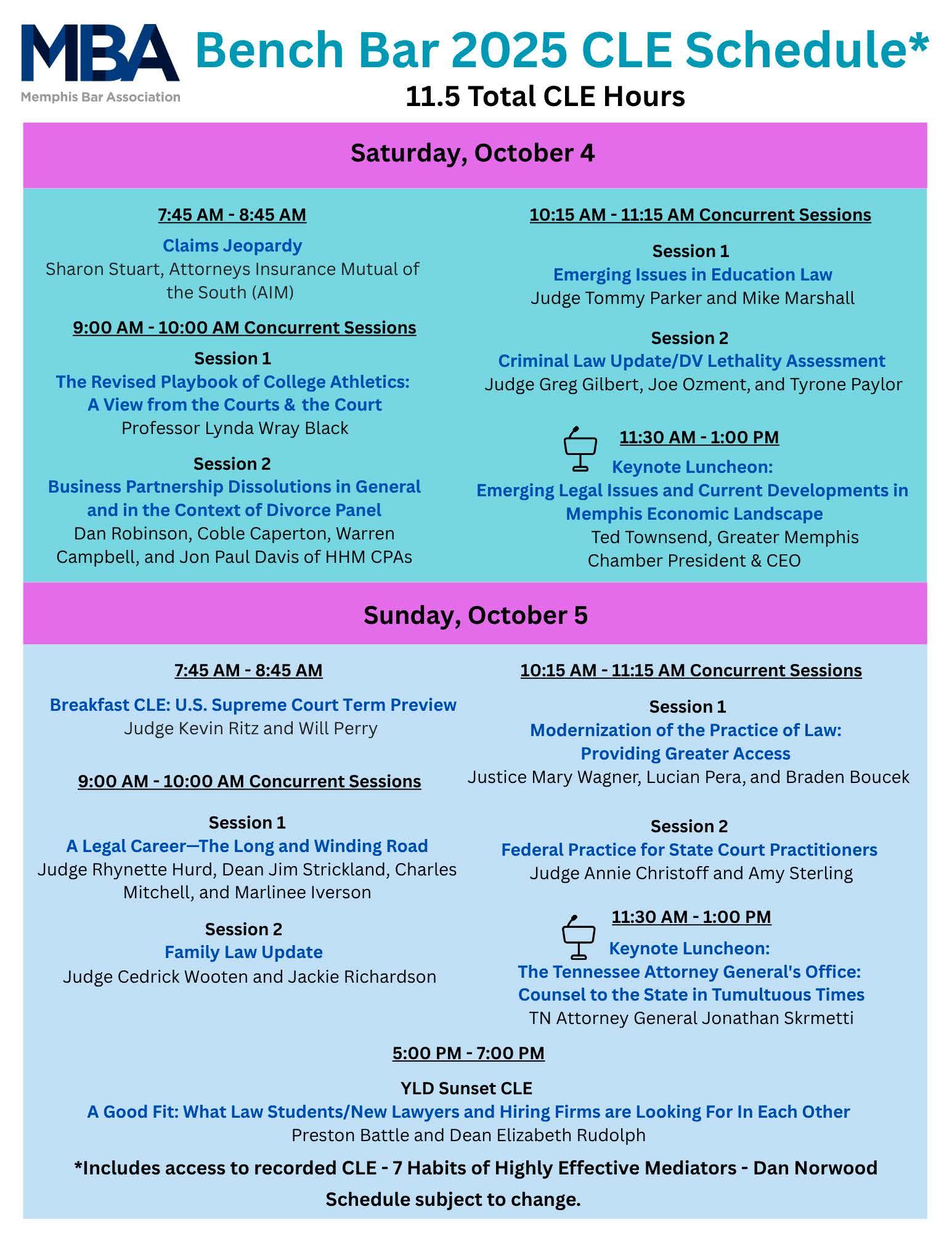

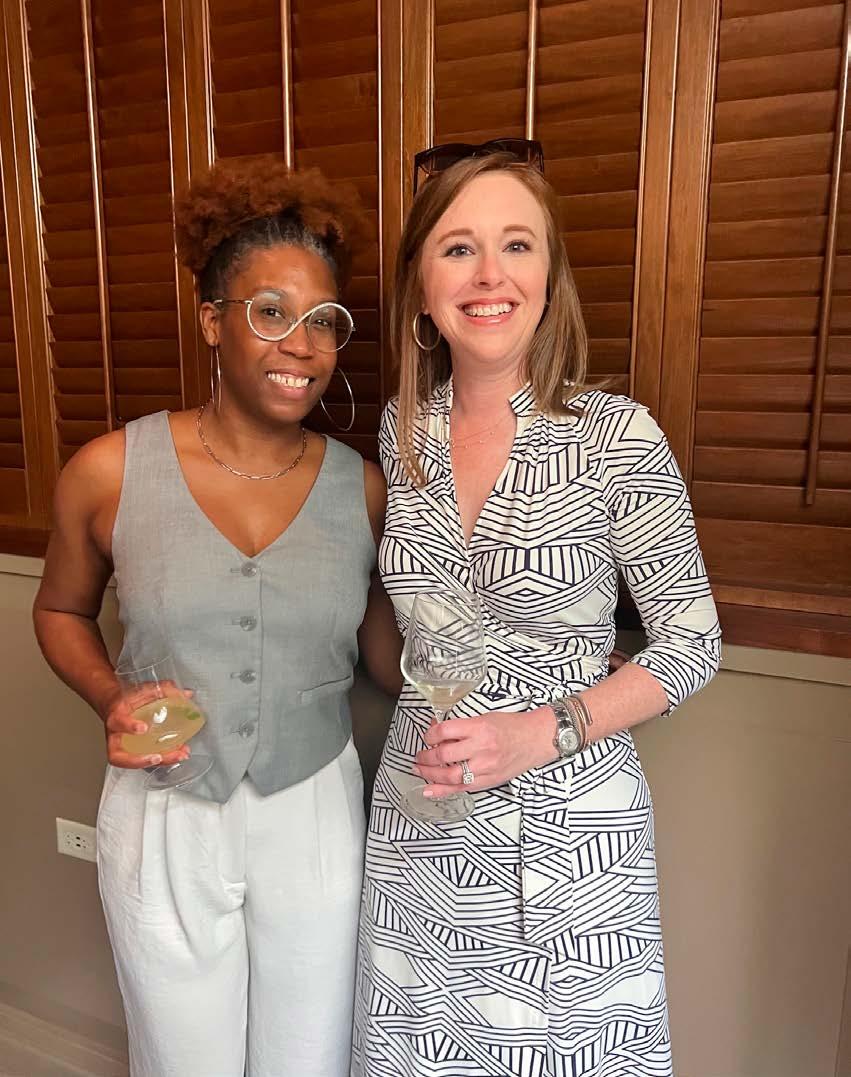
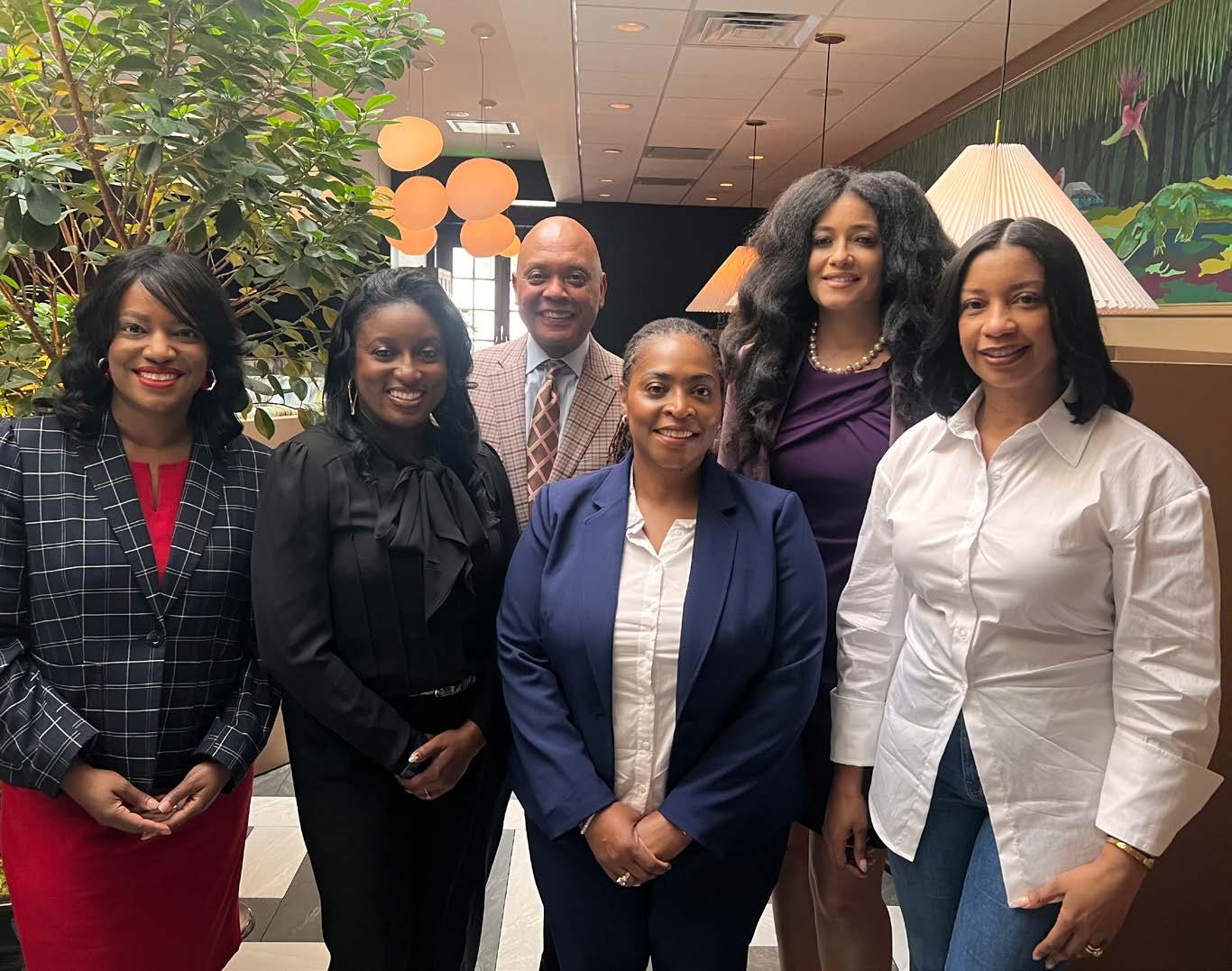
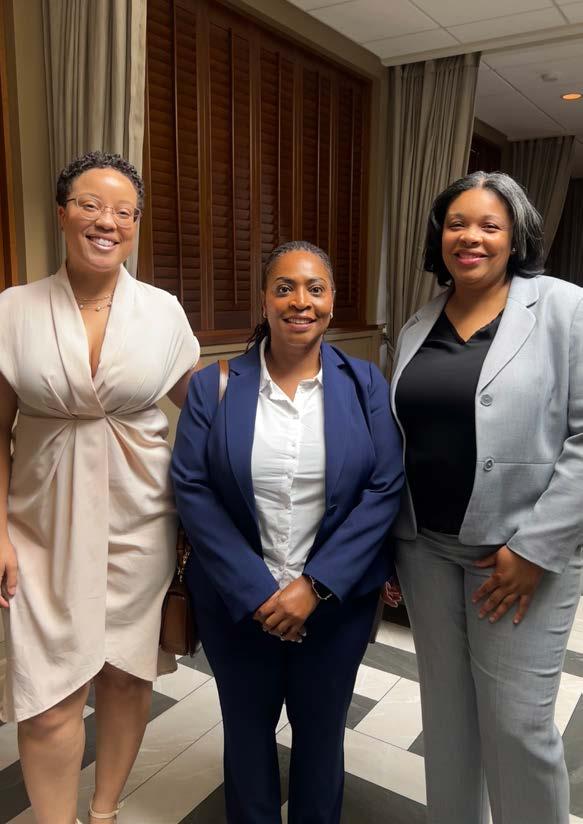

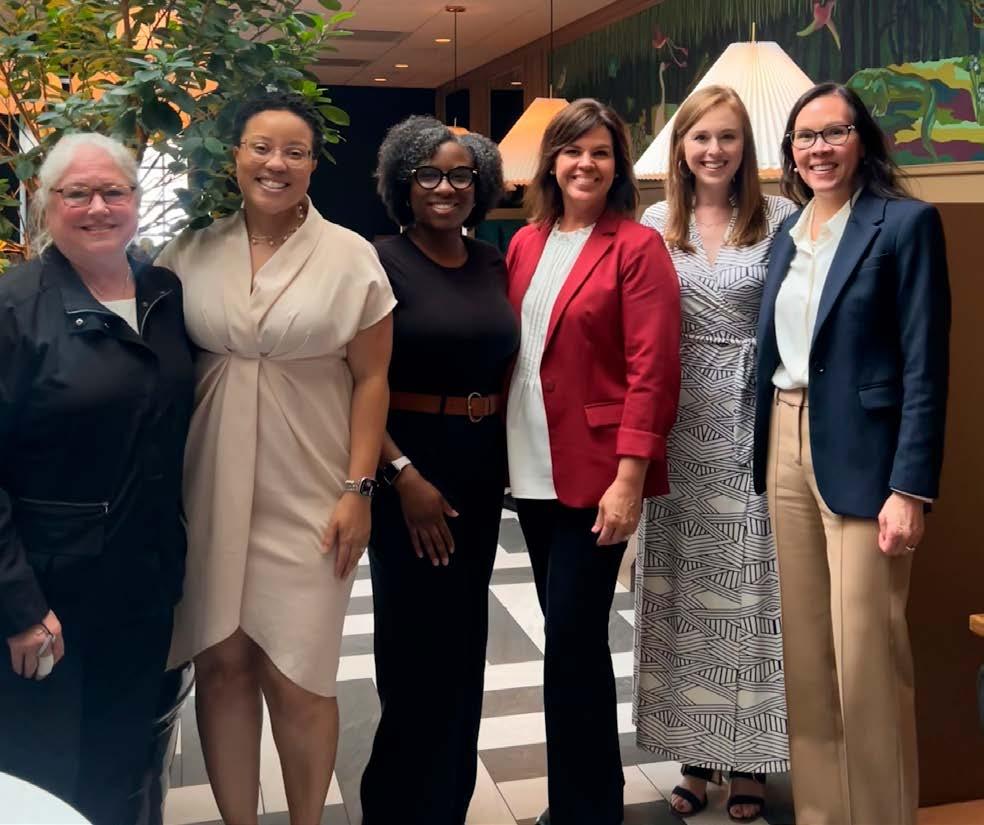
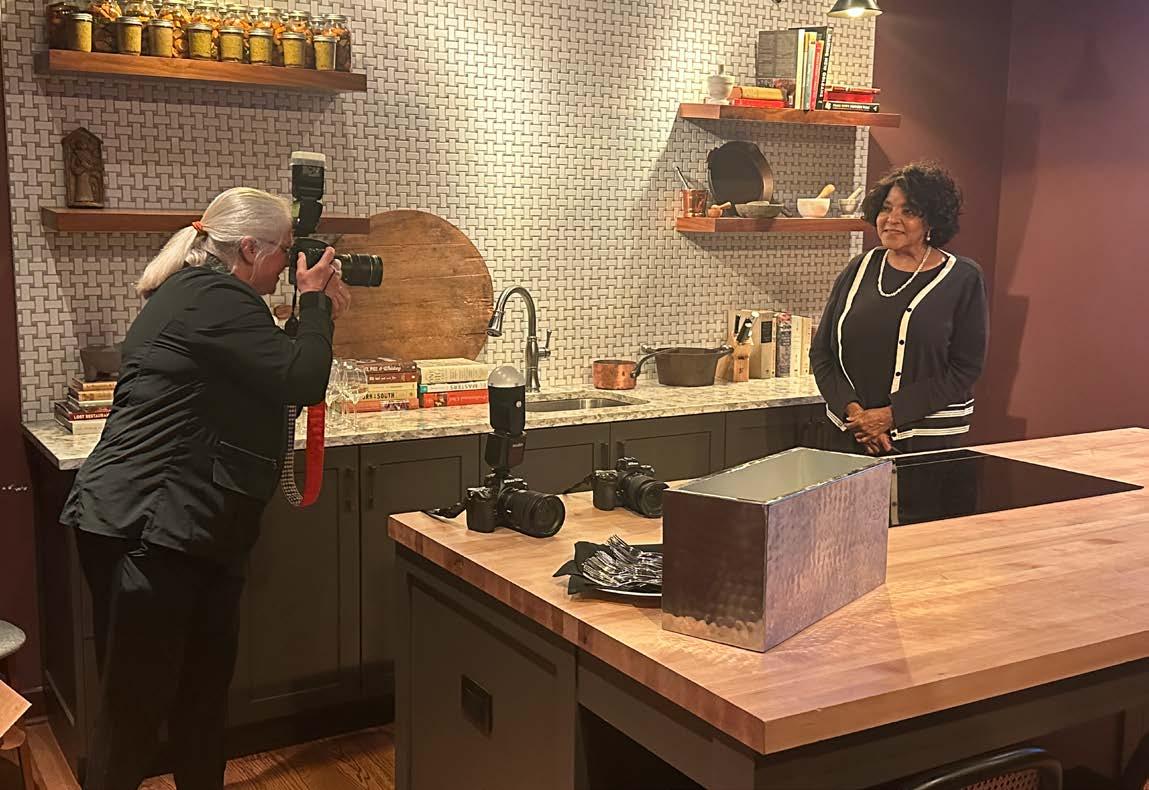
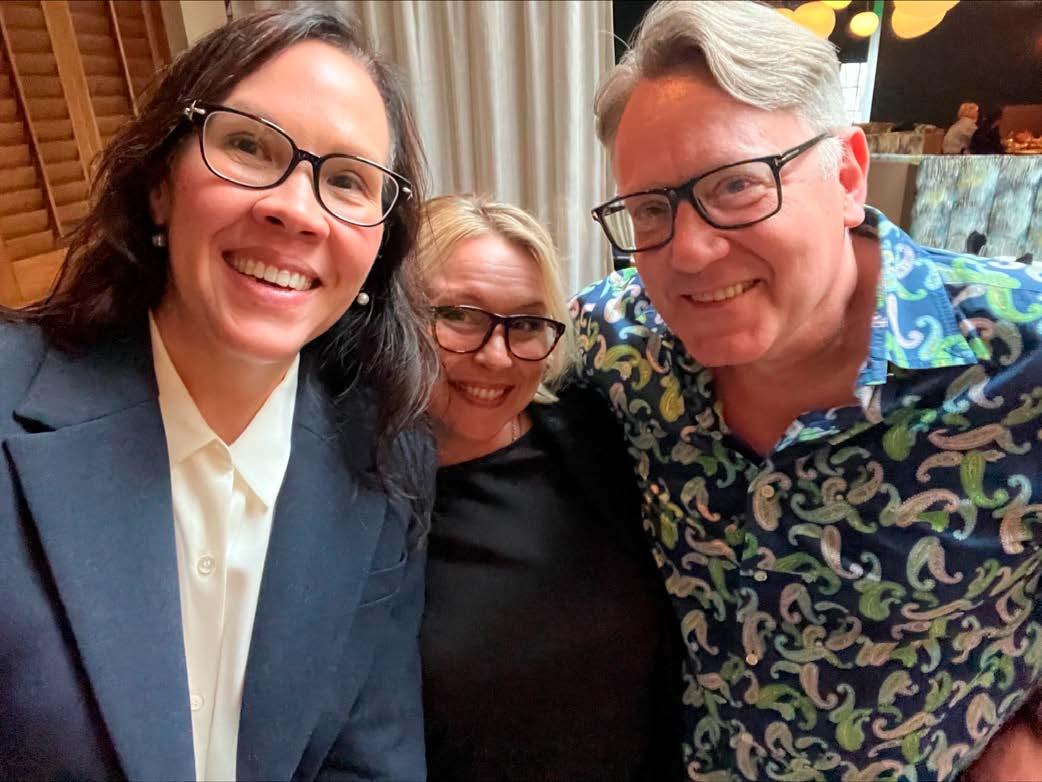

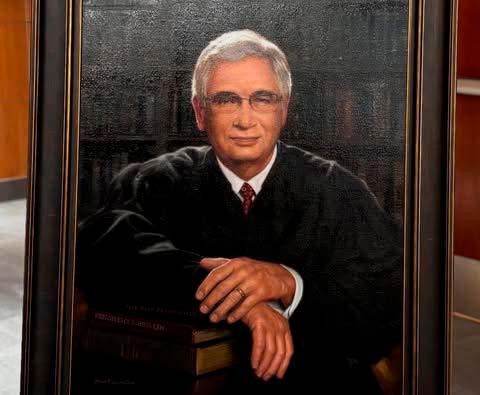
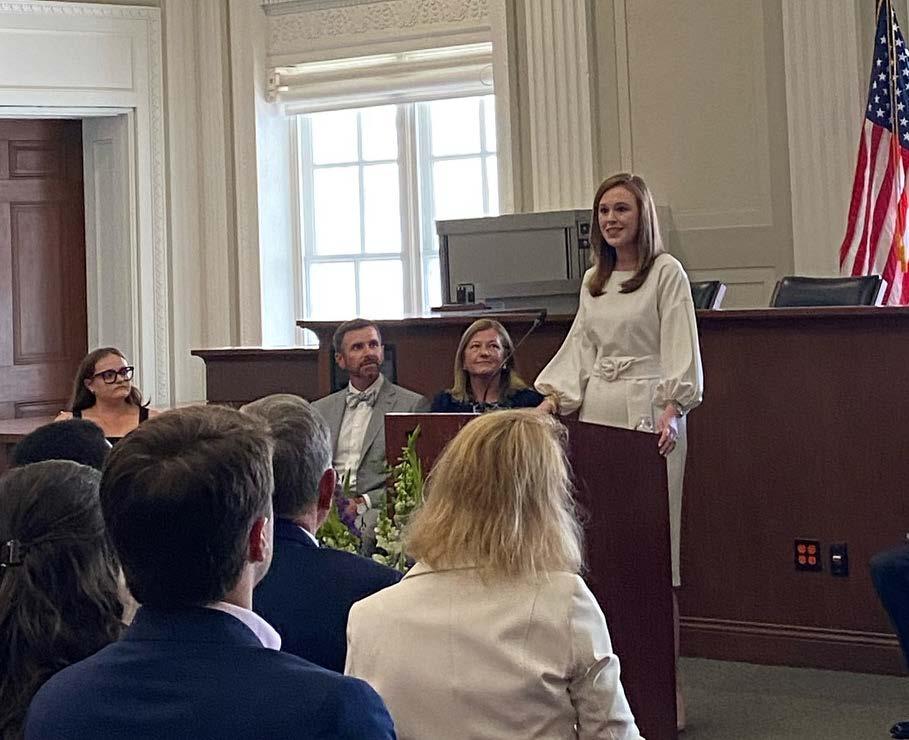
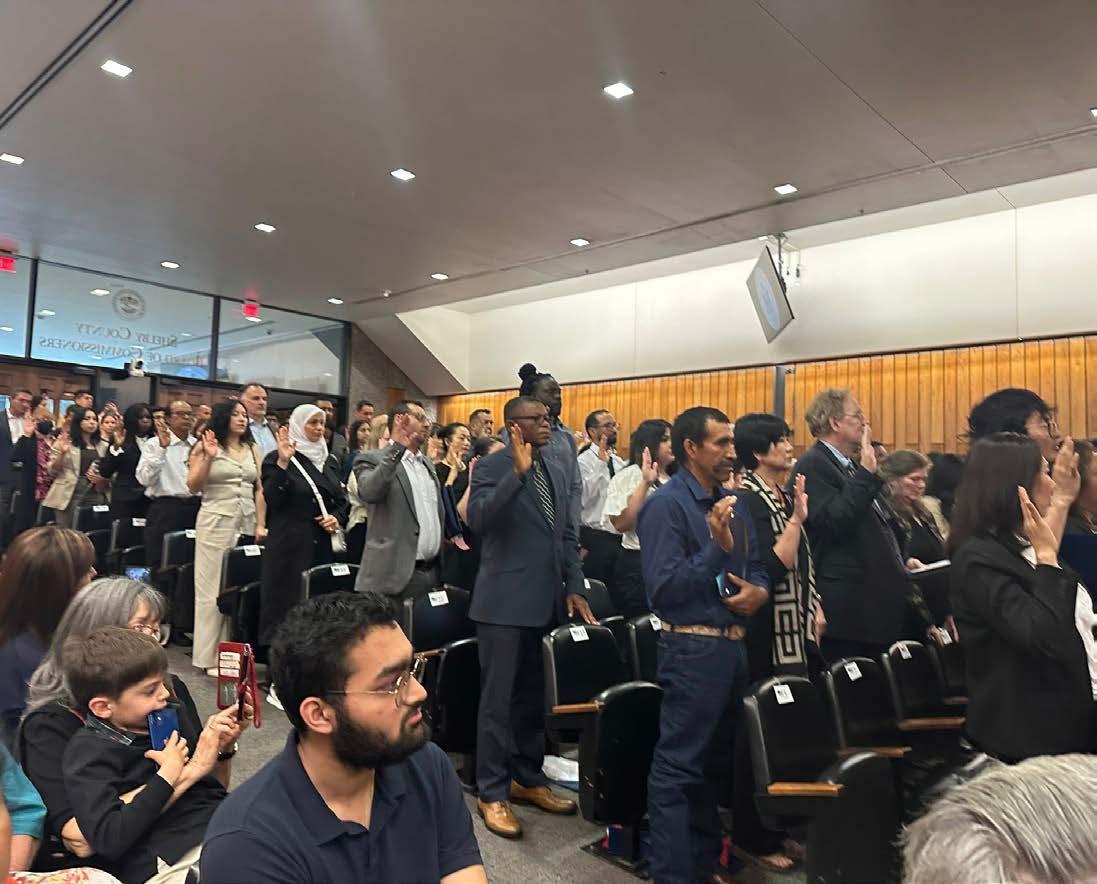
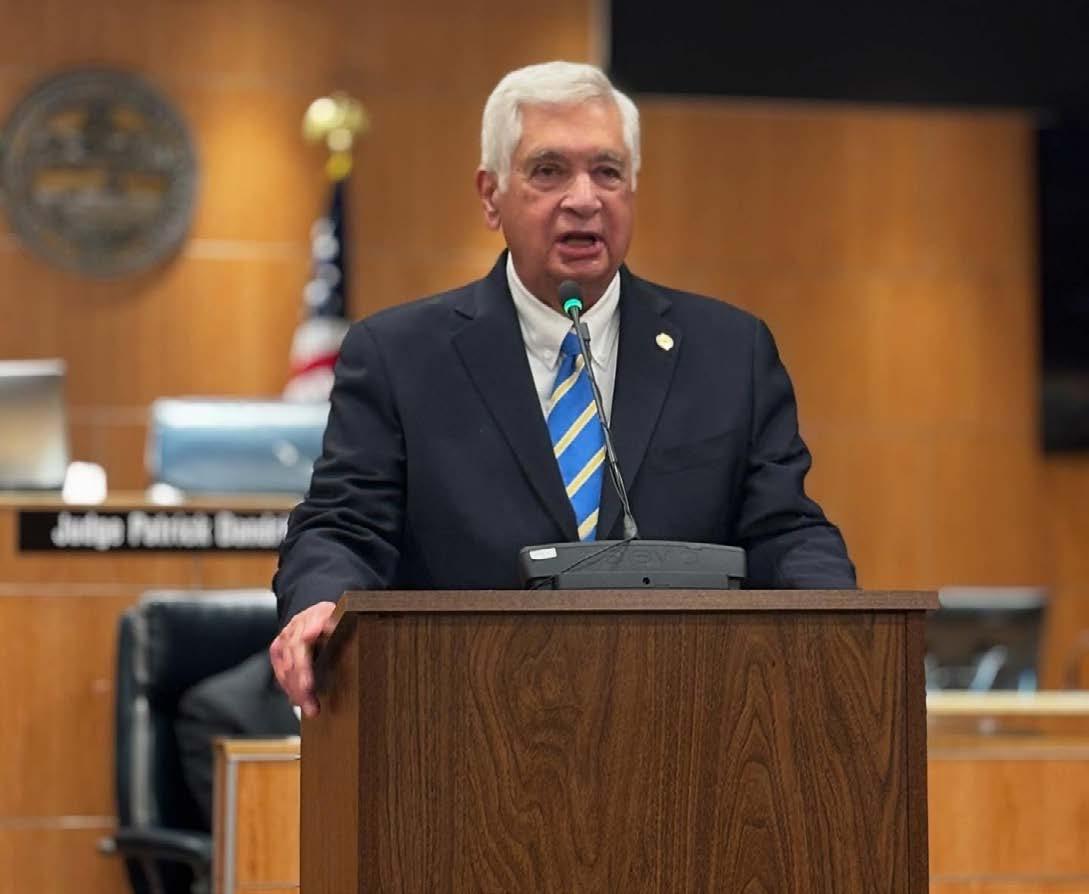
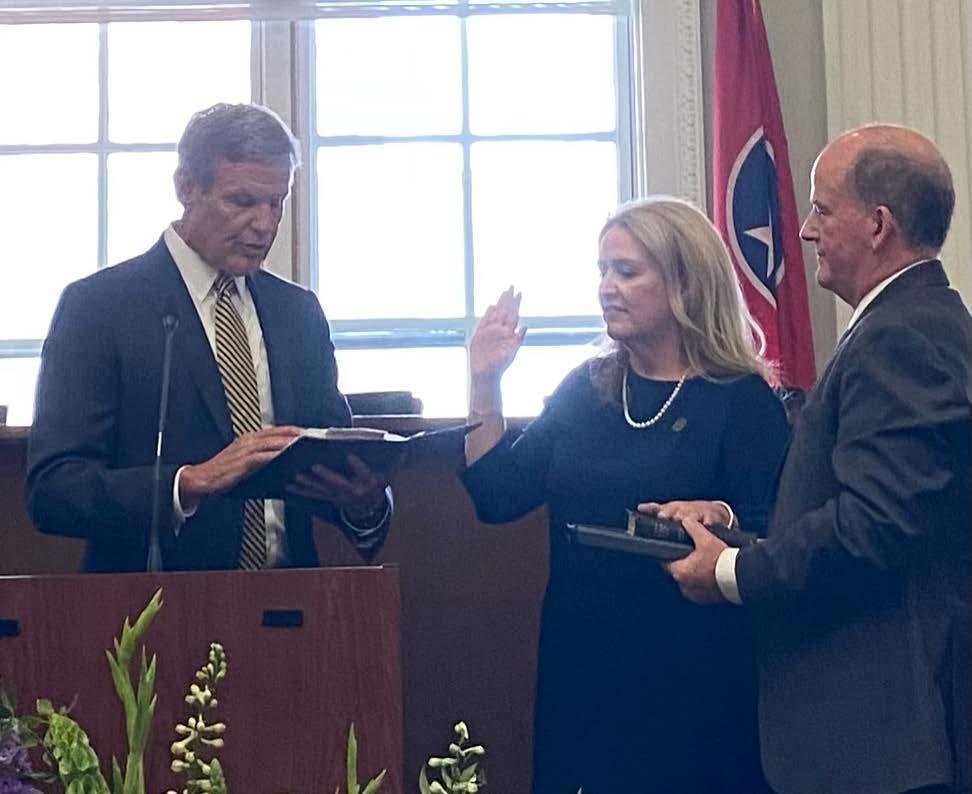
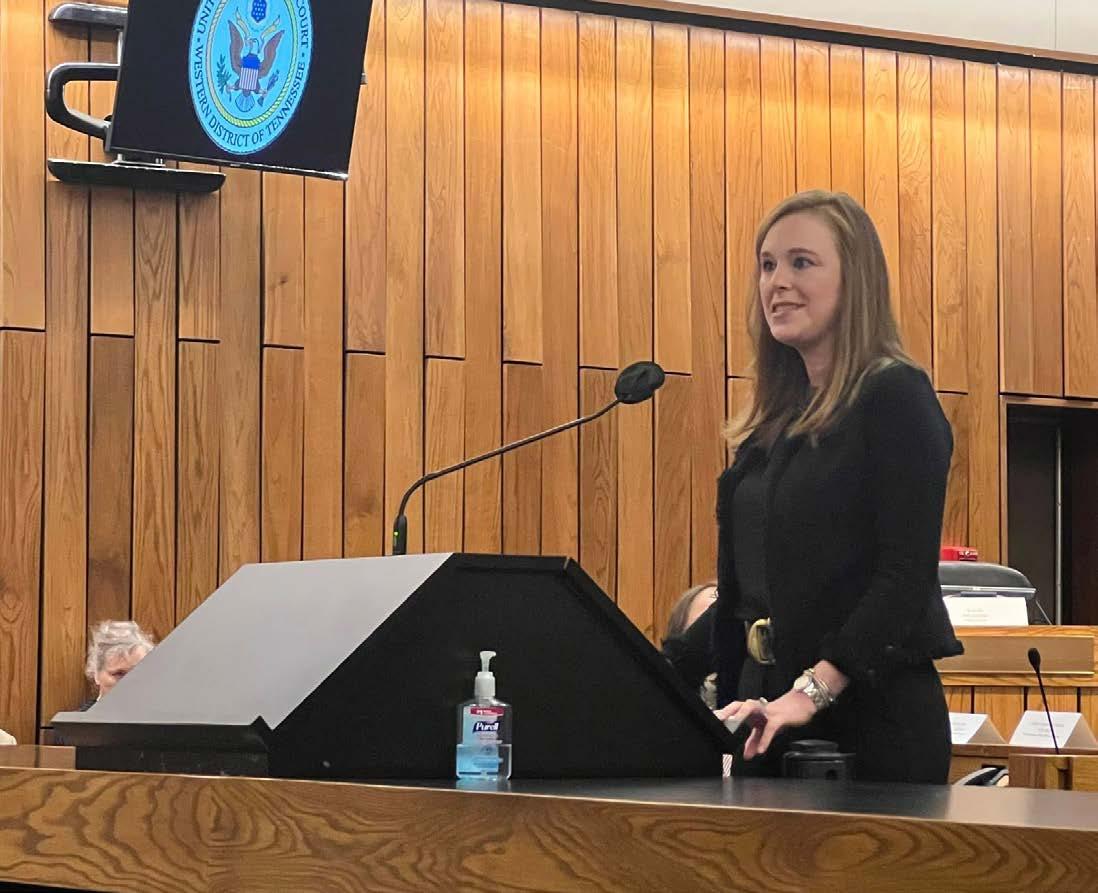

THURSDAY, JUNE 26, 2025
1 PM - 4PM
2.0 Gen CLE & 1.0 Dual CLE

Lucas Cameron-Vaughn TN ACLU

Chris Sanders
Tennessee
Equality Project
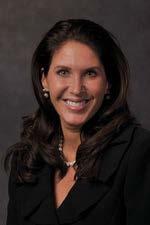
Professor Regina Hillman
University of Memphis Law School

Cole HarrellMorris
Shelby County Sheriff’s Office
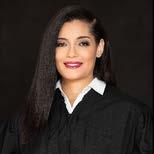
Judicial Commissioner Shayla Purifoy

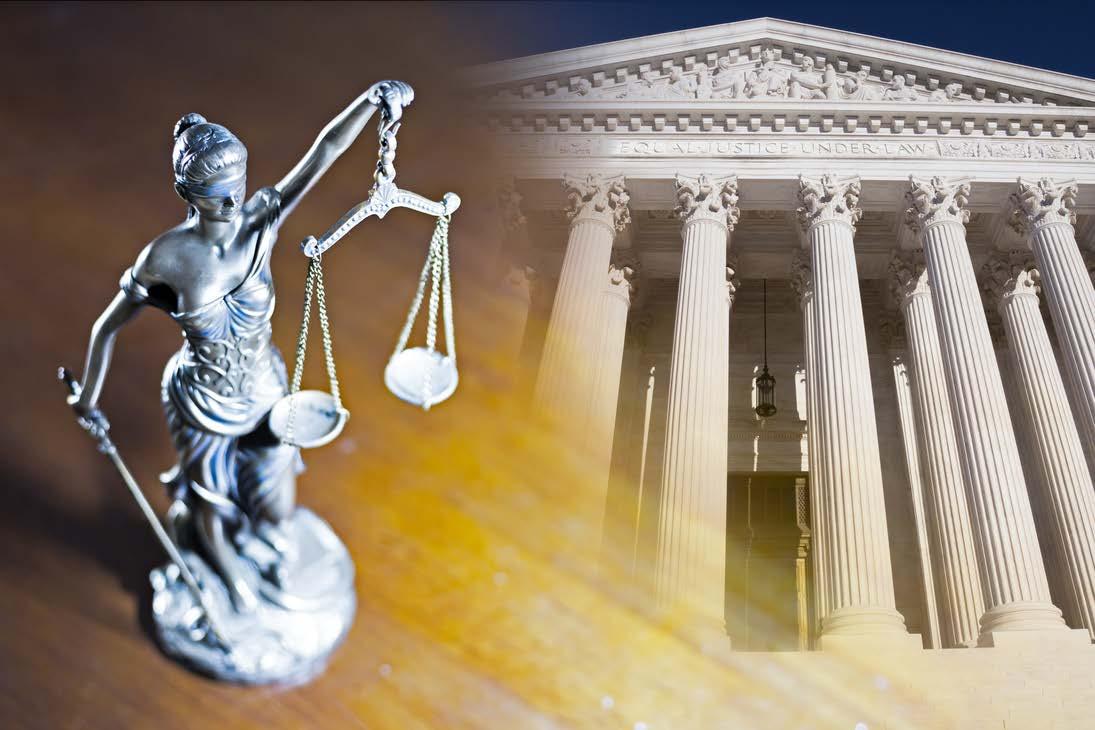

1:00 PM - 2:00 PM Court Updates
Speakers will discuss court battles over the past year affecting the LGBTQ+ community, such as U.S. v. Skrmetti and the “ TN Drag Ban” where the Sixth Circuit reversed the Western TN District Court ’s holding that the ban was unconstitutional .
2:00 PM - 3:00 PM
Speakers will discuss Executive Orders & state legislation targeting the transgender community and DEI efforts. Updates will be provided on currently filed federal legislation to protect the LGBTQ+ community.
3:00 PM - 4:00 PM
We will end the CLE with a yoga hour to help clear the mind, focus and regulate our emotions. This session will be based on the findings of the ABA's National Task Force on Lawyer Well-Being.




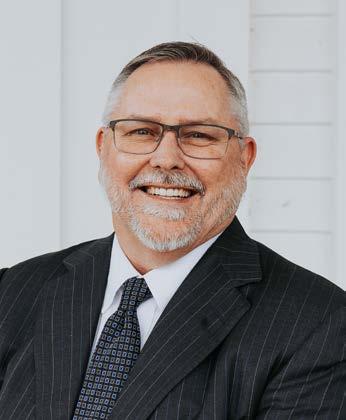
Andy Clarke recently re-joined Greer Injury Lawyers as Of Counsel after 10 years running his own law firm. Andy began his law career as a clerk in 1990 with Sadler Bailey, formerly of Greer Injury Lawyers. He graduated law school in 1992, passed the bar in Tennessee, Arkansas, and Mississippi, and continued working for the firm for the next 14 years. Working only as a plaintiff’s lawyer, Andy has handled a variety of cases over his 33 years of law practice: car & trucking wrecks, worker’s compensation, medical malpractice, negligent security, employment law, police misconduct, and civil rights cases. Greer Injury Lawyers welcomes Andy and his wealth of experience back to the team and looks forward to continued success working together.
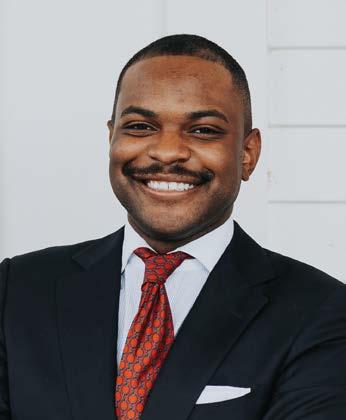
Ronald Young, of Greer Injury Lawyers, was sworn into the Tennessee bar in May 2025 and is now licensed to practice law in Tennessee. A Double Vol, he earned both his undergraduate and law degrees from the University of Tennessee. Ronald will represent plaintiffs in serious injury, wrongful death, and medical malpractice cases. His journey with Greer Injury Lawyers began as a high school student through the Memphis Bar Association’s Summer Law Internship Program—an opportunity that led to his first job at the firm and, ultimately, to his return as an attorney. Over the years, he has been an integral part of the firm and co-launched its Giveback Program, which supports nonprofits across Memphis. Grateful for the opportunities that shaped him, Ronald is proud to serve the community that first invested in him.






After 20 years of service on the bench, the Honorable Judge Paula Skahan has announced that she will retire from Shelby County Criminal Court, Division I, effective June 30, 2025. Appointed to Division I in December 2004 by Governor Phil Bredesen and elected in 2006, Judge Skahan has served with distinction and fairness. Before her appointment, Judge Skahan built a well-rounded legal career, working as a criminal defense attorney, an Assistant District Attorney General, and an Assistant Public Defender in Shelby County. Her diverse experience shaped her reputation as a fair and thoughtful jurist. In a letter to Governor Bill Lee, Judge Skahan wrote, "I have served as a Judge in Criminal Court, Division I since December 2004, and it has been an honor and pleasure to serve our citizens for the past 20 years. I am truly grateful for the experience and memories it has given me during this time." A graduate of the University of Tennessee at Chattanooga and the Cecil C. Humphreys School of Law at the University of Memphis, Judge Skahan is a member of the Association of Women Attorneys and the Memphis Bar Association.
U.S. Immigration Judge Rebecca Holt retired from the Executive Office for Immigration Review in May after 15 years of service. Judge Holt was appointed to be an immigration judge in Memphis in 2010. She decided thousands of immigration cases while she was on the bench.
If you are an MBA member in good standing and you’ve moved, been promoted, hired an associate, taken on a partner, or received an award, we’d like to hear from you. We will not print notices of honors determined by other publications (e.g., Super Lawyers, Best Lawyers). Notices are limited to 100 words; they are printed at no cost to members and are subject to editing. E-mail your notice and hi-resolution photo (300 dpi) to kswan@memphisbar.org.
